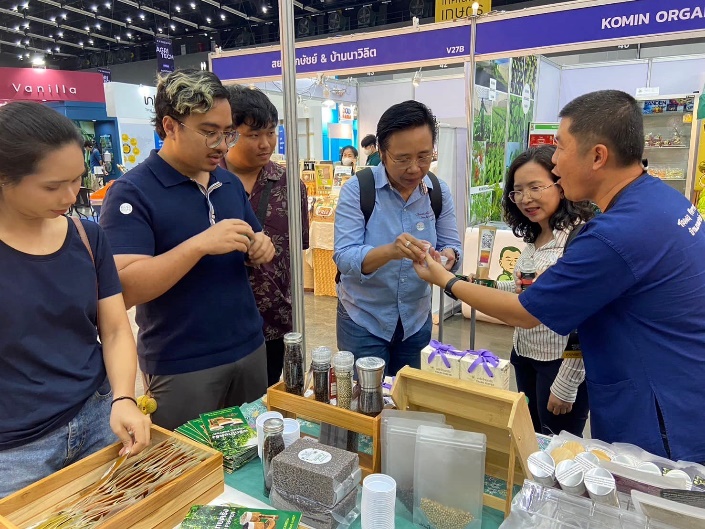Reporters: Dr. Wichulada Thavaroj, Ms. Panyaras Luekhajon, Asst. Prof. Rungtip Wuttanaworakit, Asst. Prof. Noppadon Podkumnerd, Asst. Prof. Jasada Romyen ,Mr. Jessada Montralak
Evidence Date: during 2024 Jan-Dec
Related SDGs:
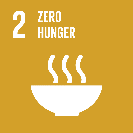
Related Indicators: 2.1.1,2.1.2
Details:
The provision of food services in the university is carried out by external service providers, with detailed operational conditions specified in a contractual agreement. These conditions are established under the criteria outlined in the announcement of the Rajamangala University of Technology Srivijaya regarding criteria, terms, and methods for the rental rates and maintenance costs of property under the university’s care, within the Songkhla district. The rental rates and property maintenance costs under the university’s care are set in the year. 2024. This is further regulated by a committee responsible for leasing properties, following the university’s order number 956/2023. This committee ensures that businesses complying with the university’s criteria operate under the specified standards. Within the university, there are various food establishments on 6 campuses. There are 7 main food service areas, including:
Central Cafeteria, Songkhla
Faculty of Engineering Cafeteria
Faculty of Industrial Education Cafeteria
Central Cafeterias, Nakhon (2 cafeterias)
Central Cafeteria, Trang
Central Cafeteria, Rattaphum
Small food kiosks
Rental food shop
Convenience stores.
Table 1 Number of food service points in the university indicated by service type
|
Type of food service point |
amount (point) |
|---|---|
|
Canteen |
8 |
|
Kiosks serve snacks and drinks |
10 |
|
Restaurant (rental) |
8 |
|
Convenience store |
2 |
Table 2 Number of food service shops in the university indicated by type of shop
|
Type of food service |
Amount (shop) |
|---|---|
|
Main food |
32 |
|
Snack and drink shop |
20 |
|
Convenience shop |
2 |
RUTS Canteen in Songkhla
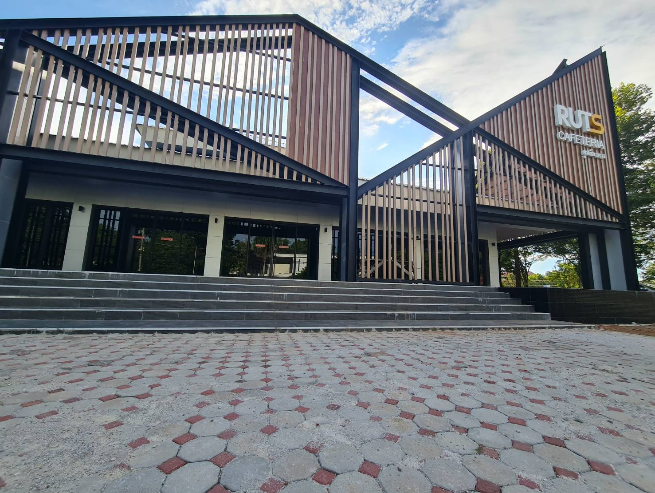
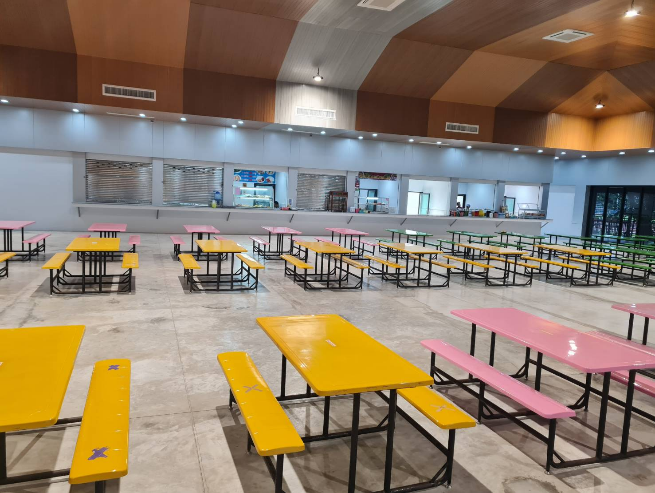
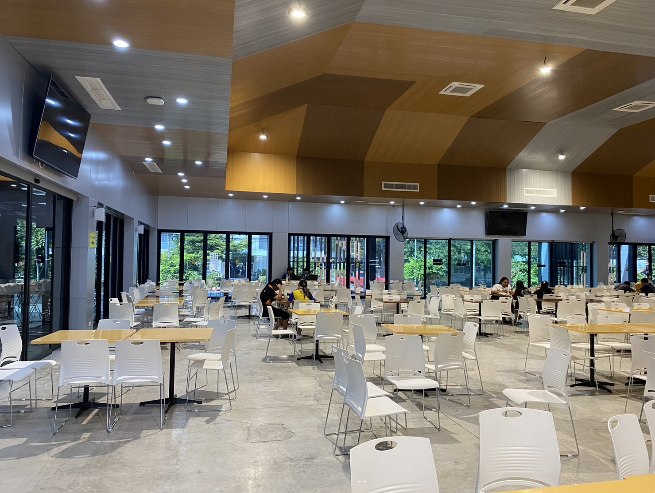
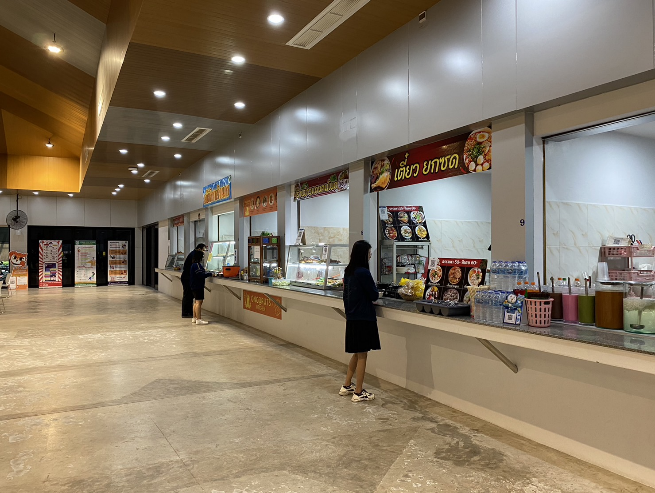
Faculty of Engineering canteen in Songkhla
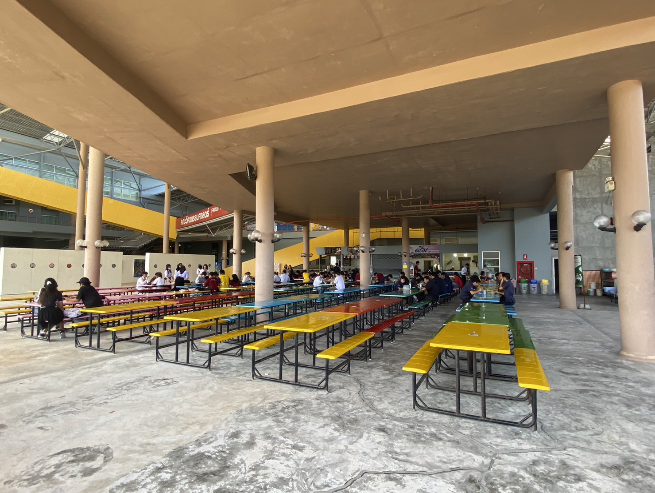
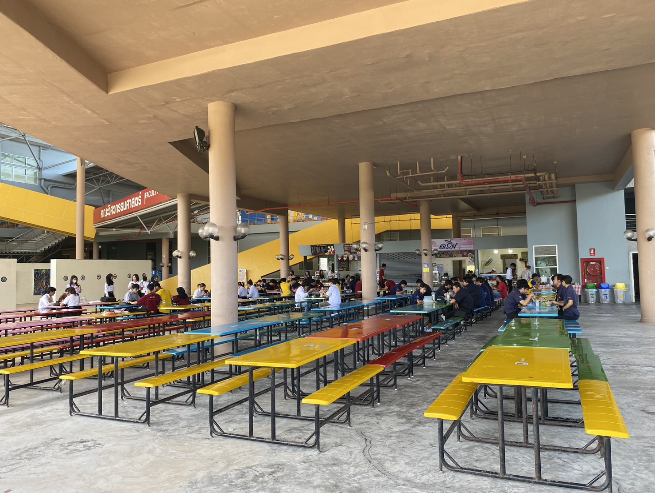
Faculty of Industrial Education and Technology canteen in Songkhla
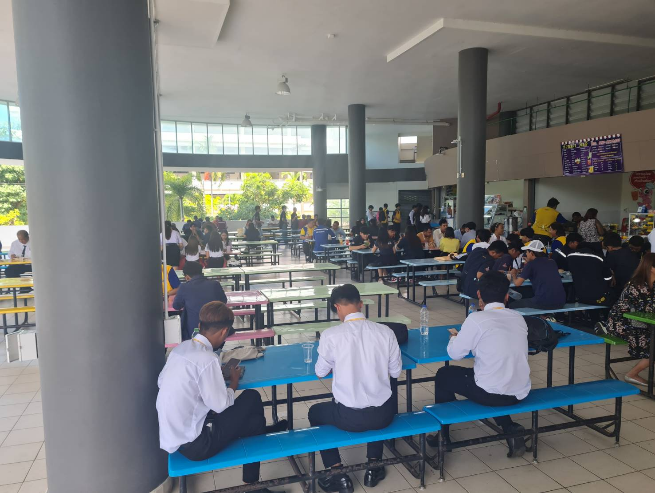
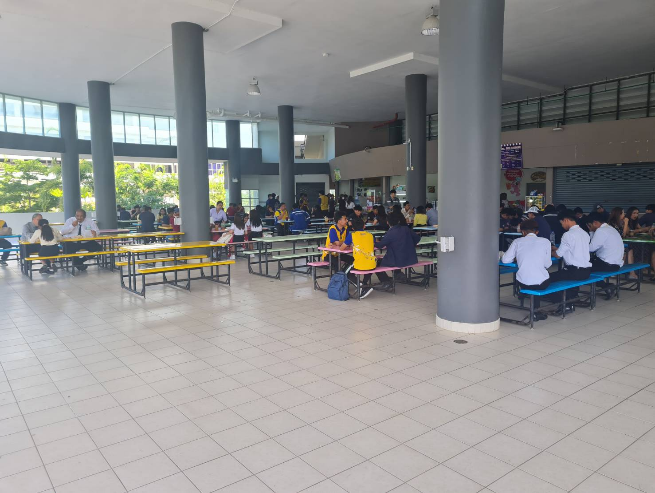
RUTS canteen in Nakornsirthammarat 1st place (Saiyai)
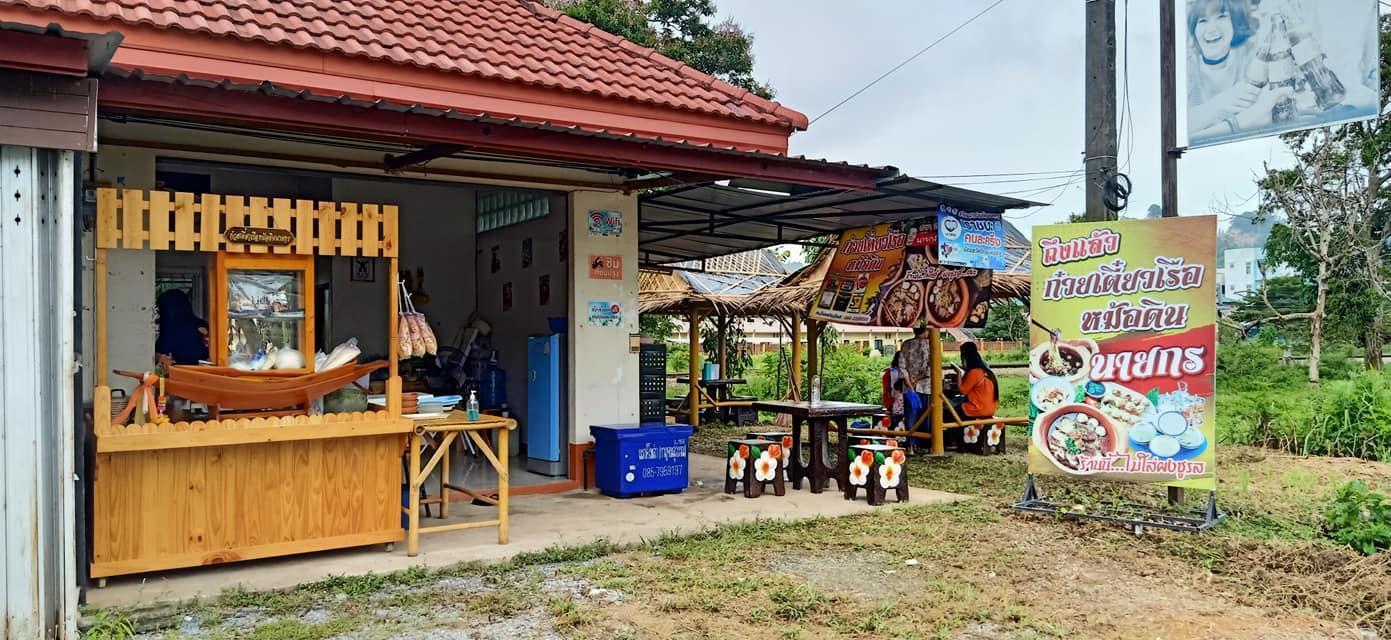 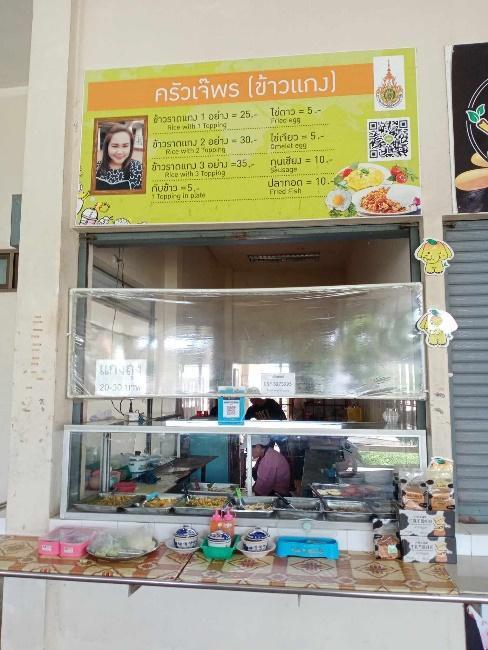 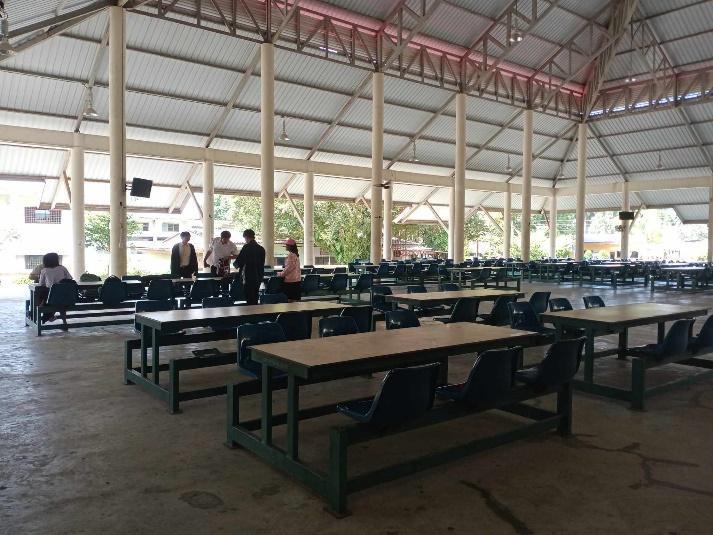 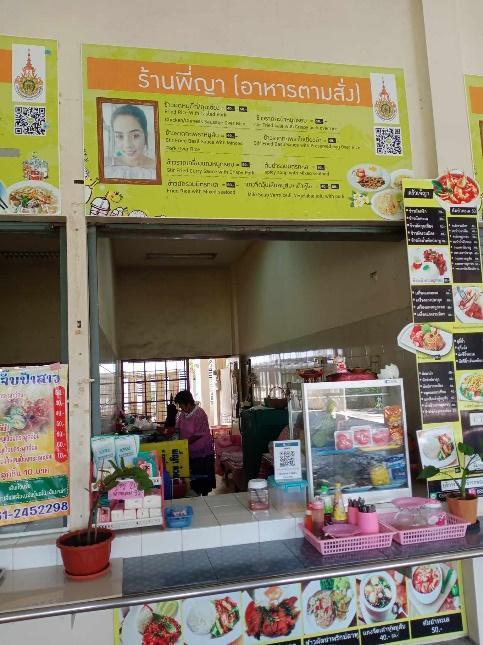 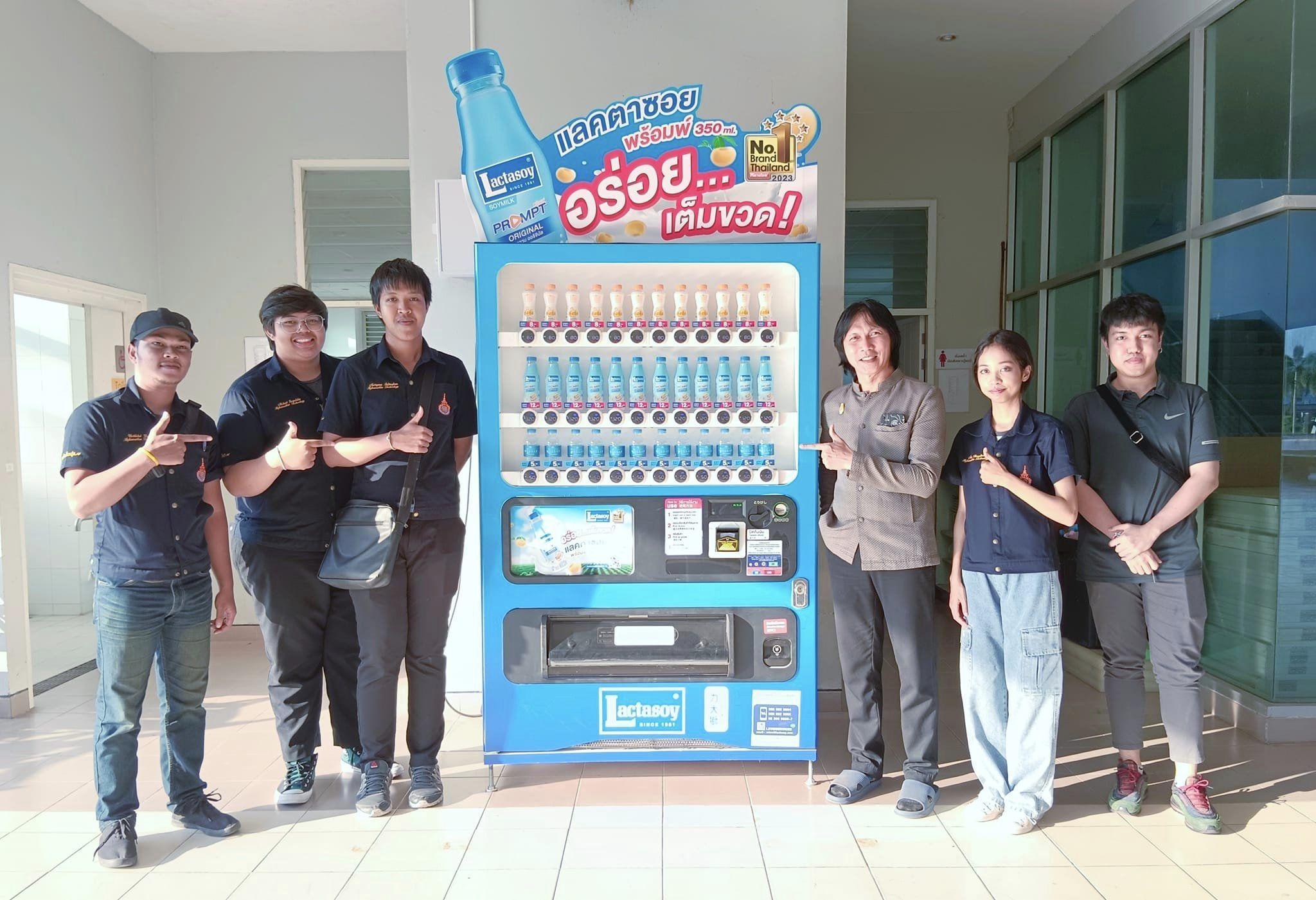 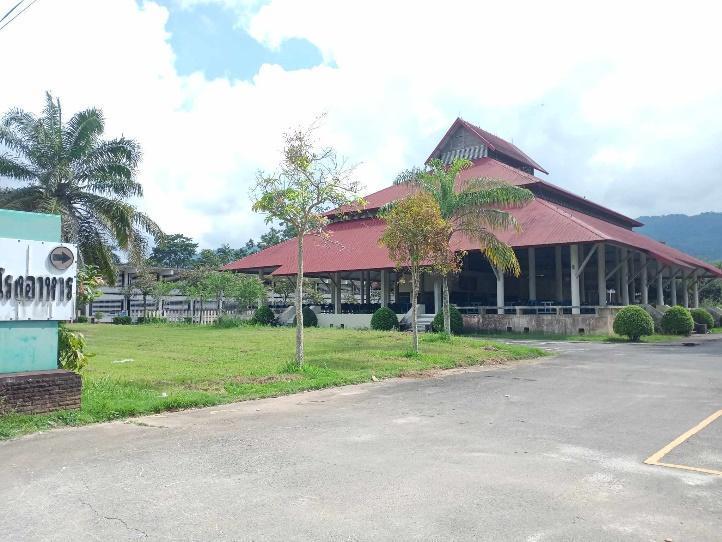 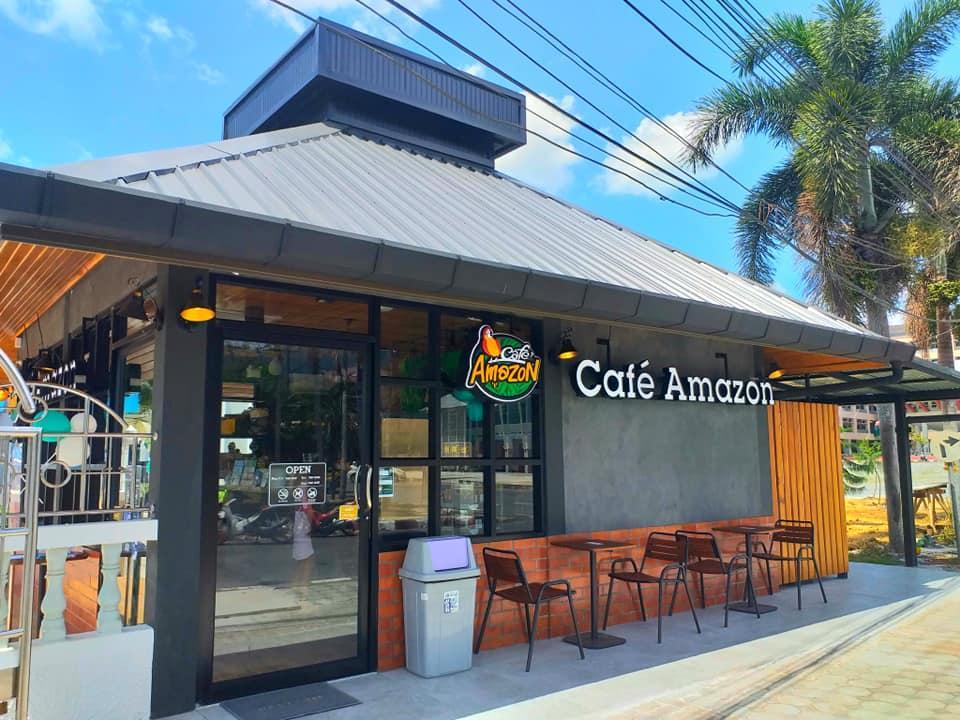
|
|---|
RUTS canteen in Nakornsirthammarat 2nd place (Thungyai)
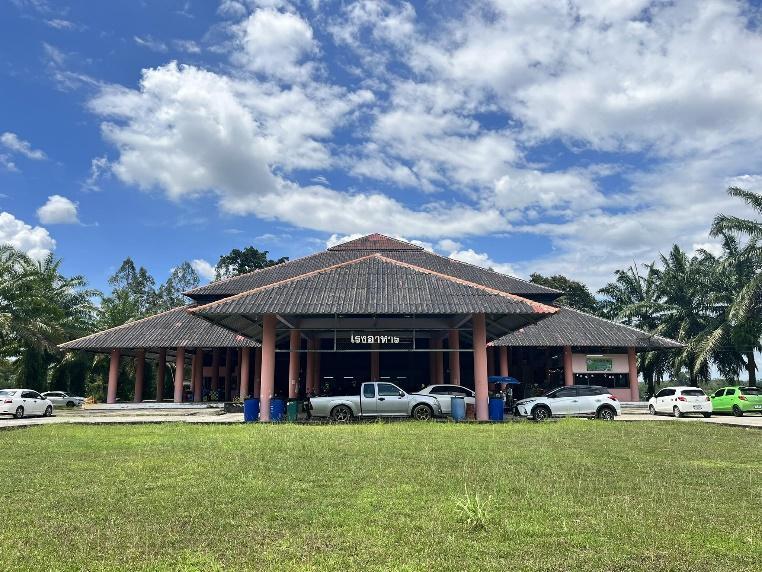 |
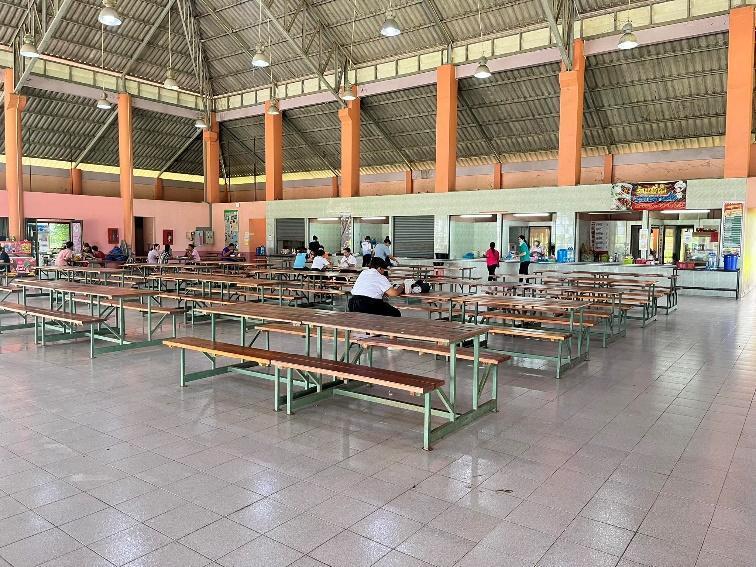 |
|---|---|
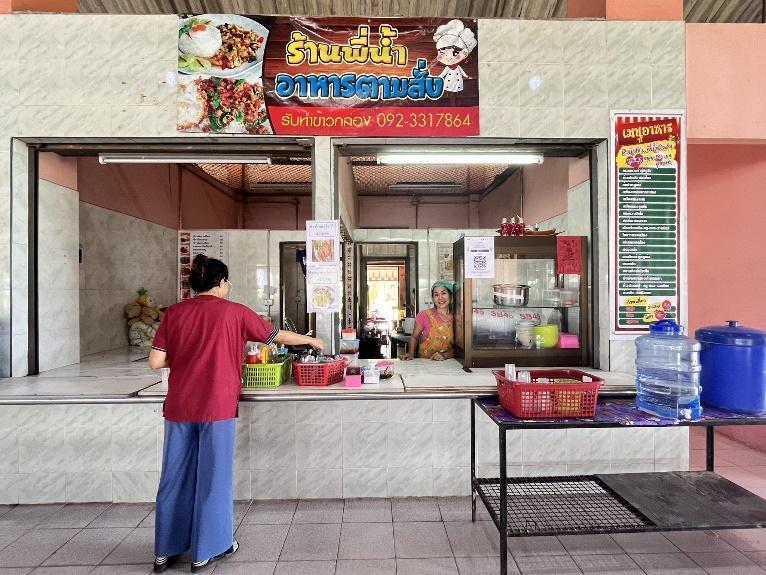 |
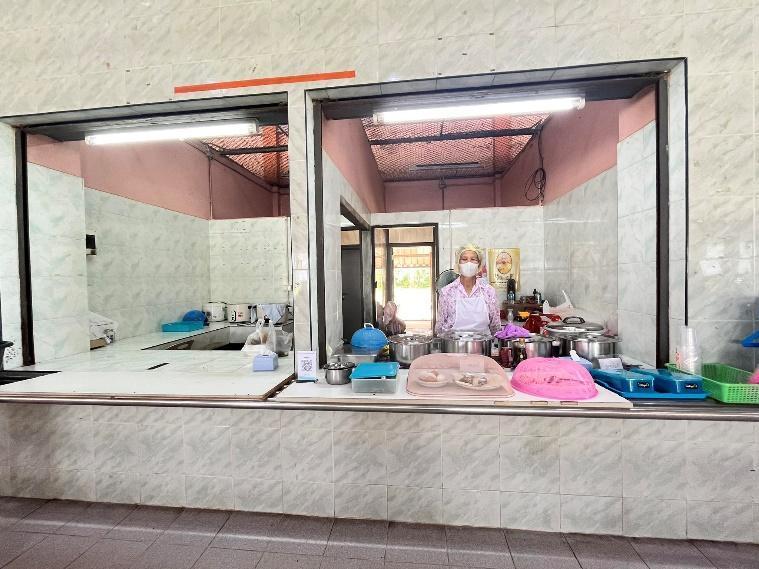 |
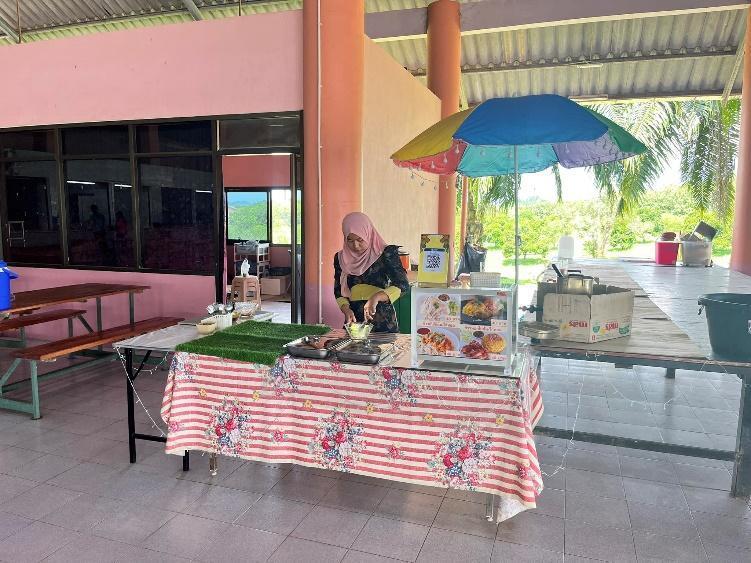 |
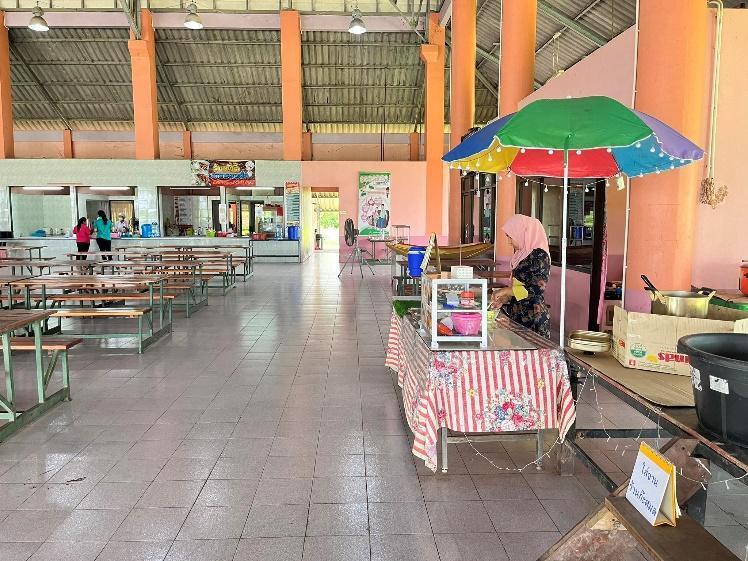 |
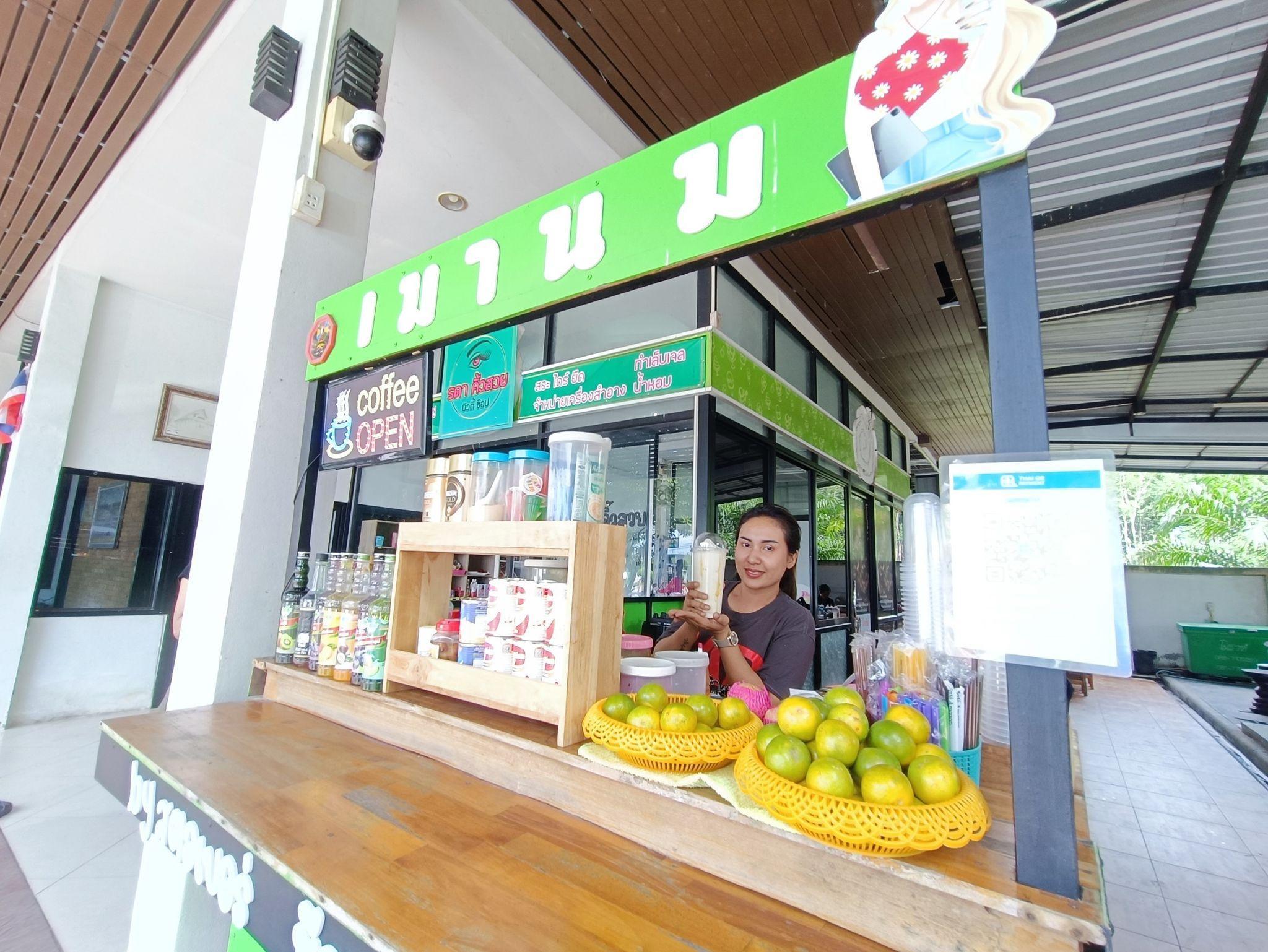
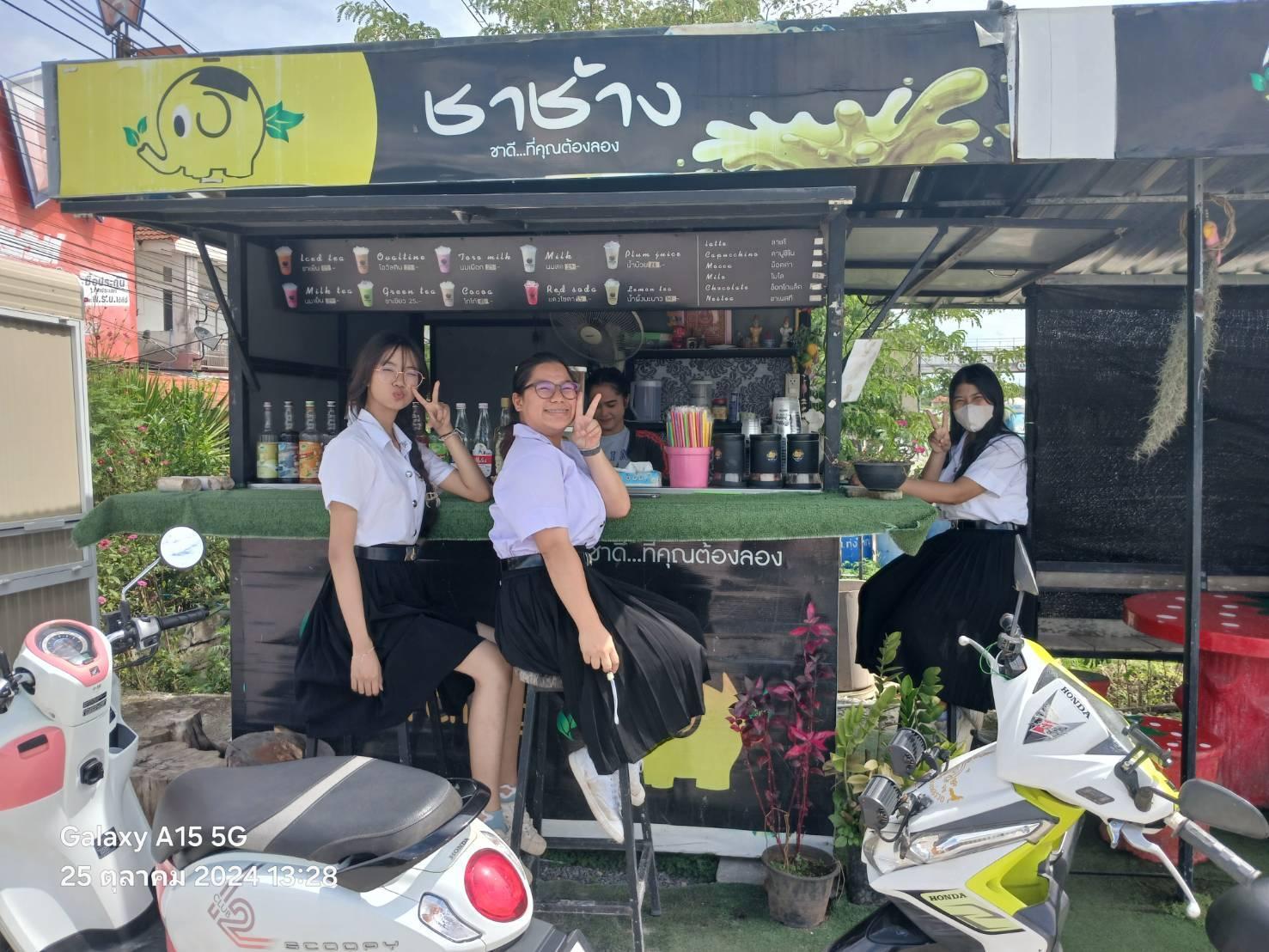
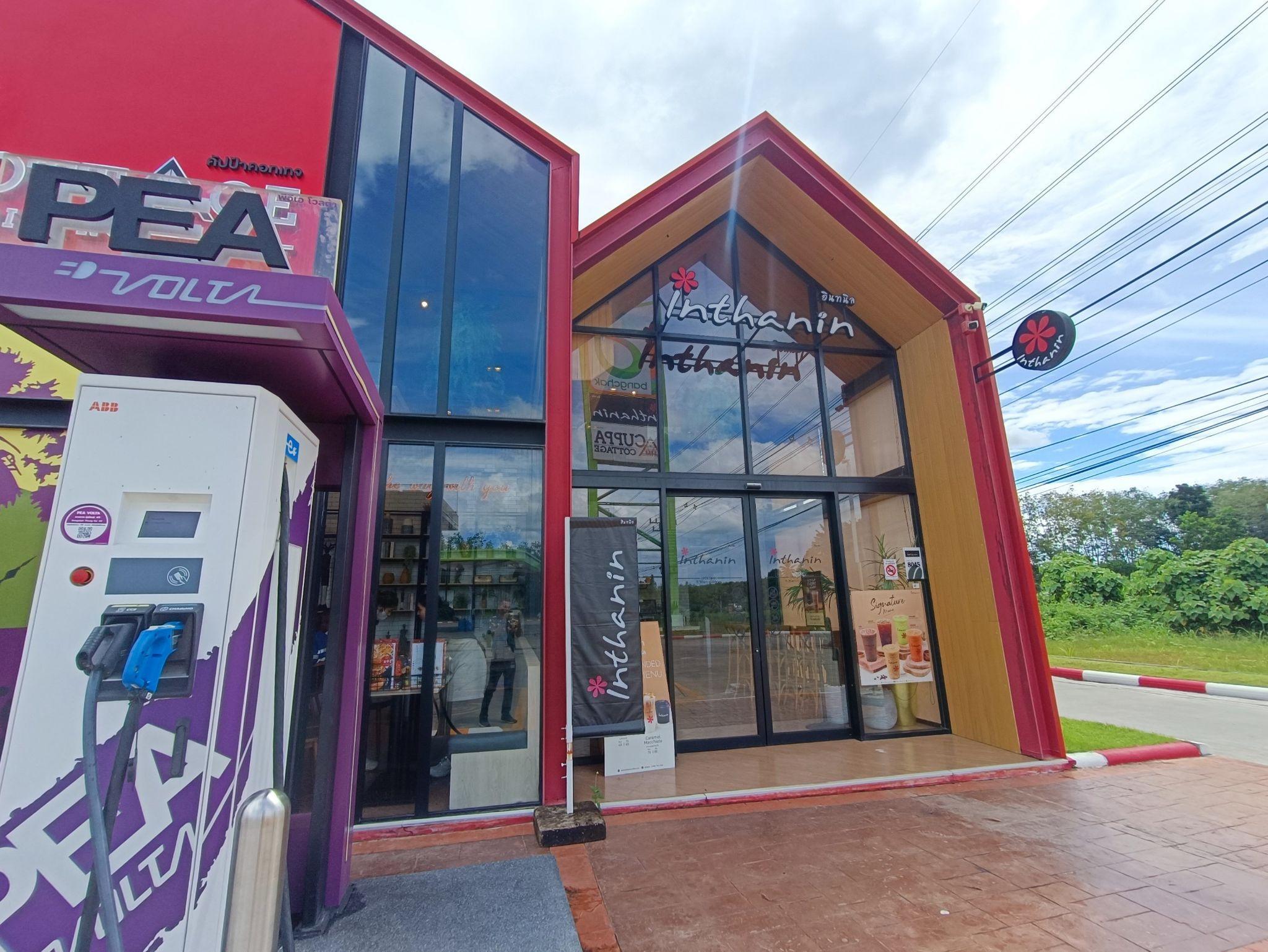
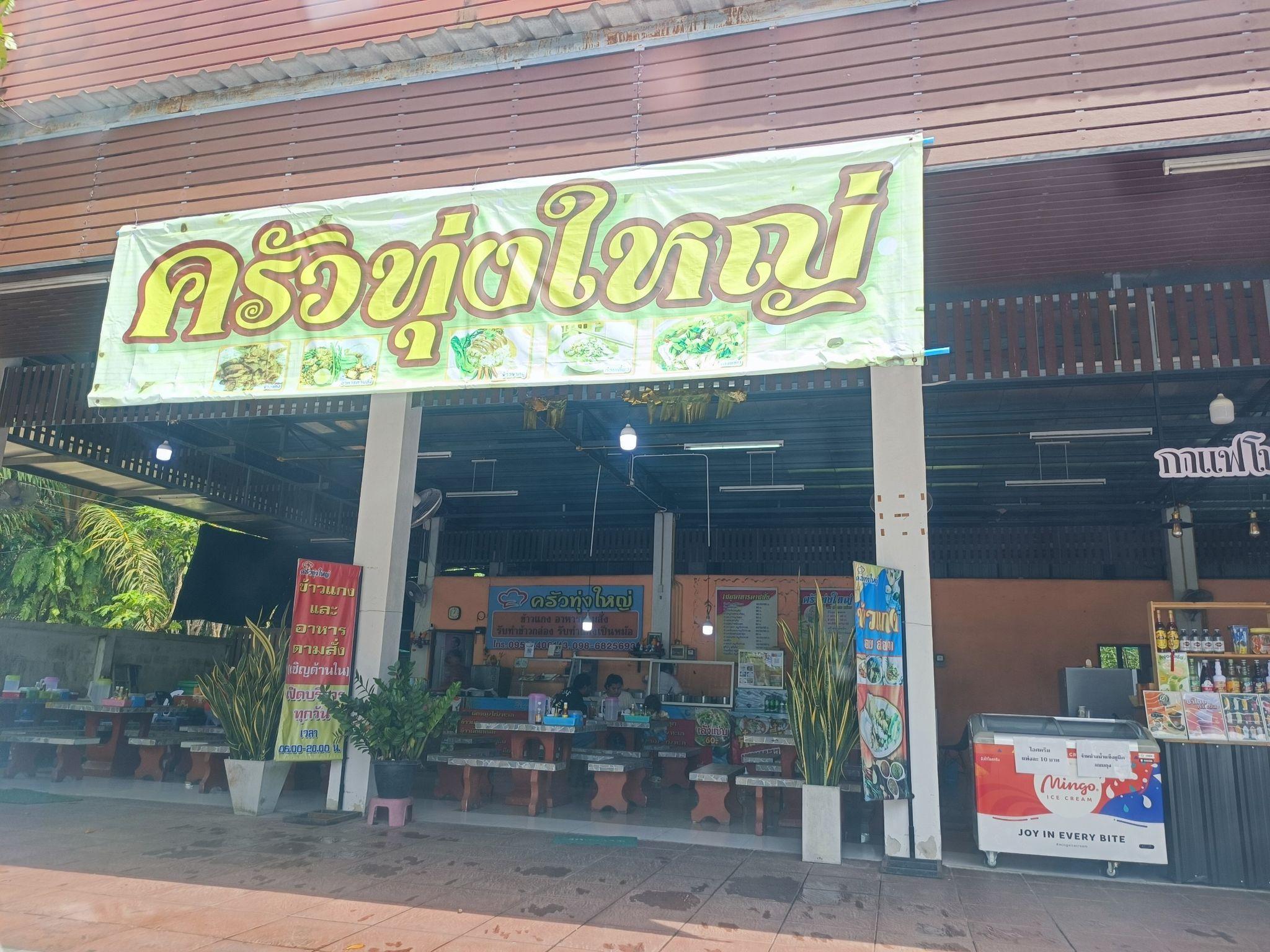
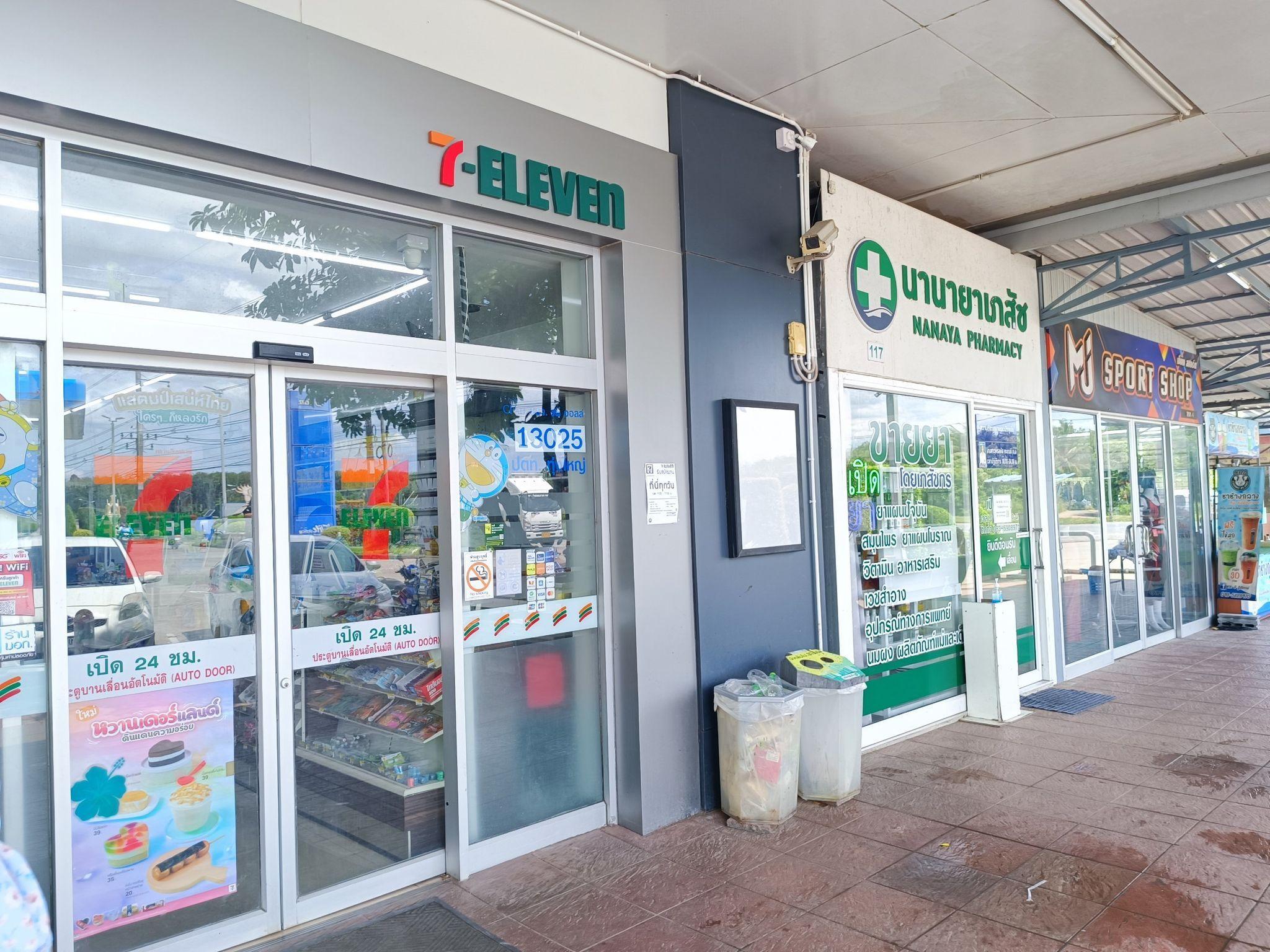
RUTS canteen in Nakornsirthammarat 3nd place (Kanom)
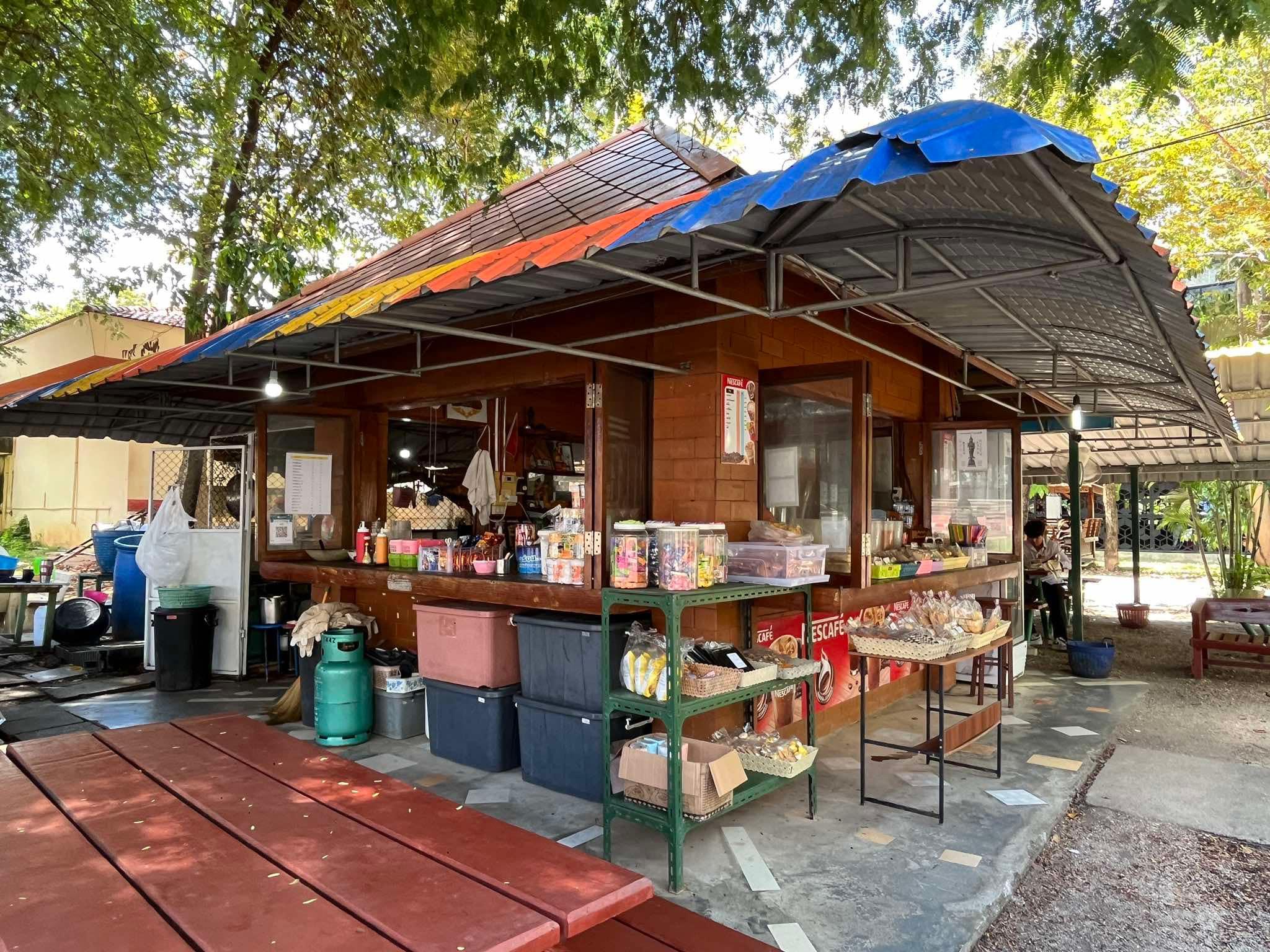
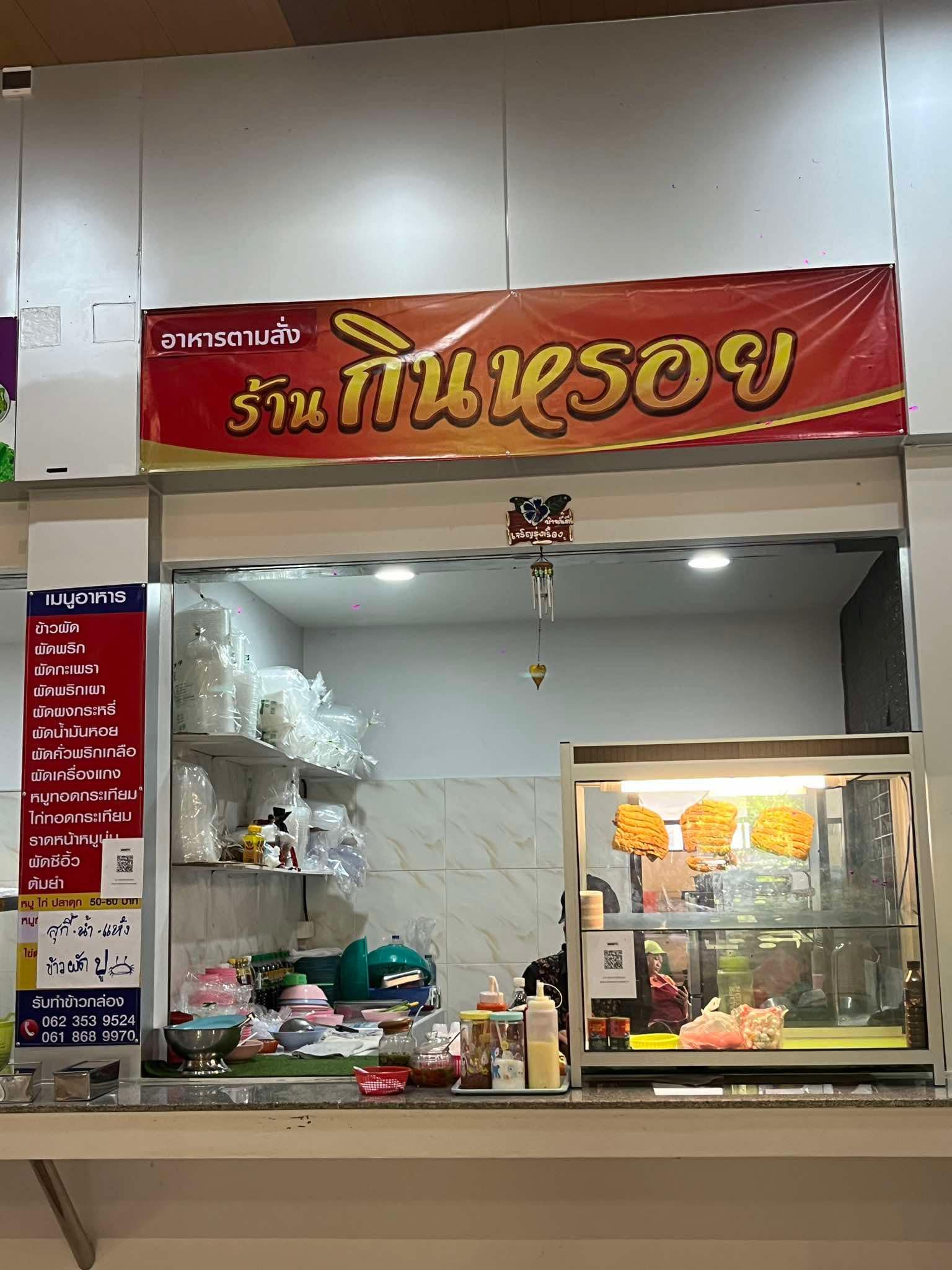
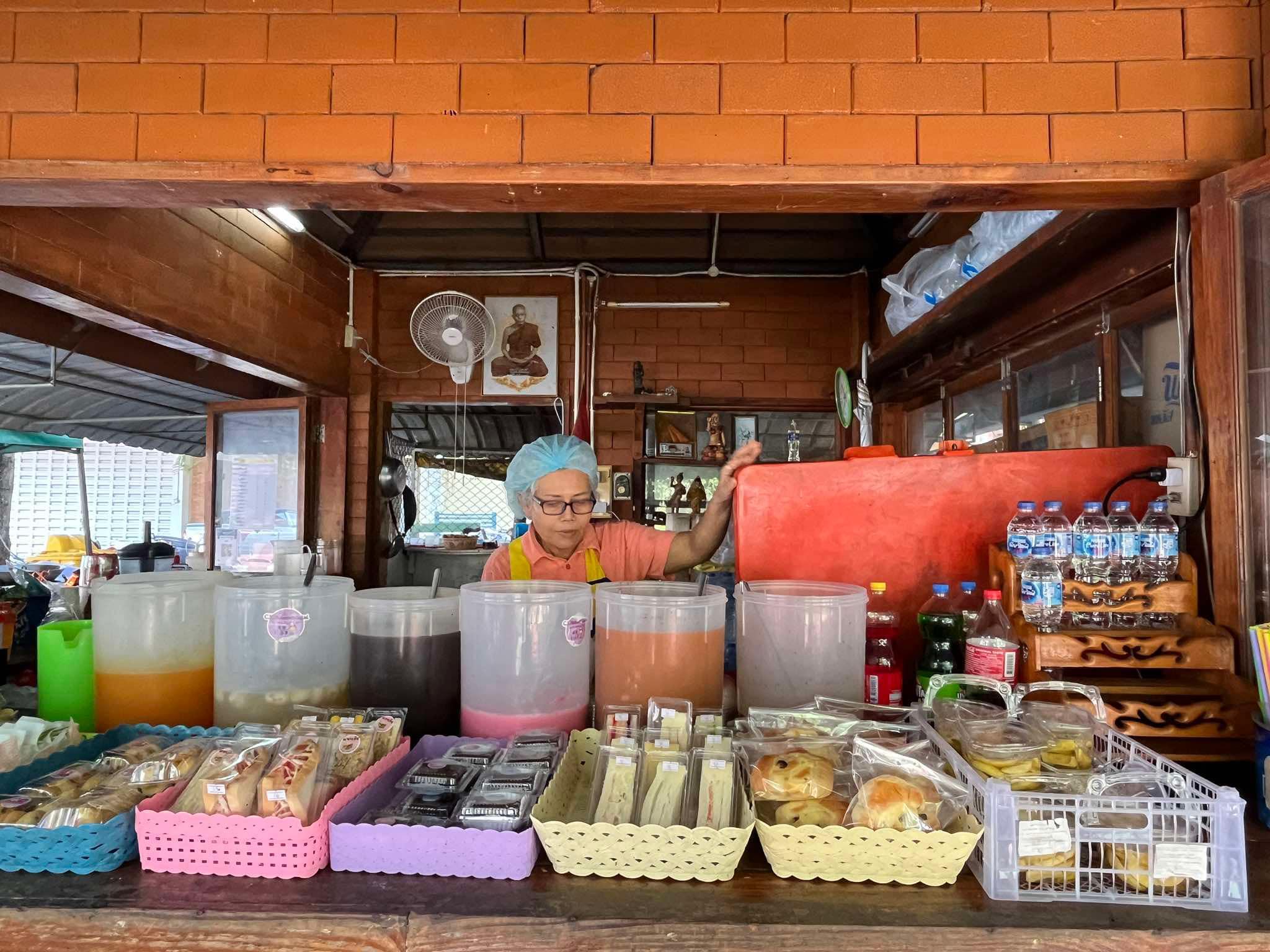
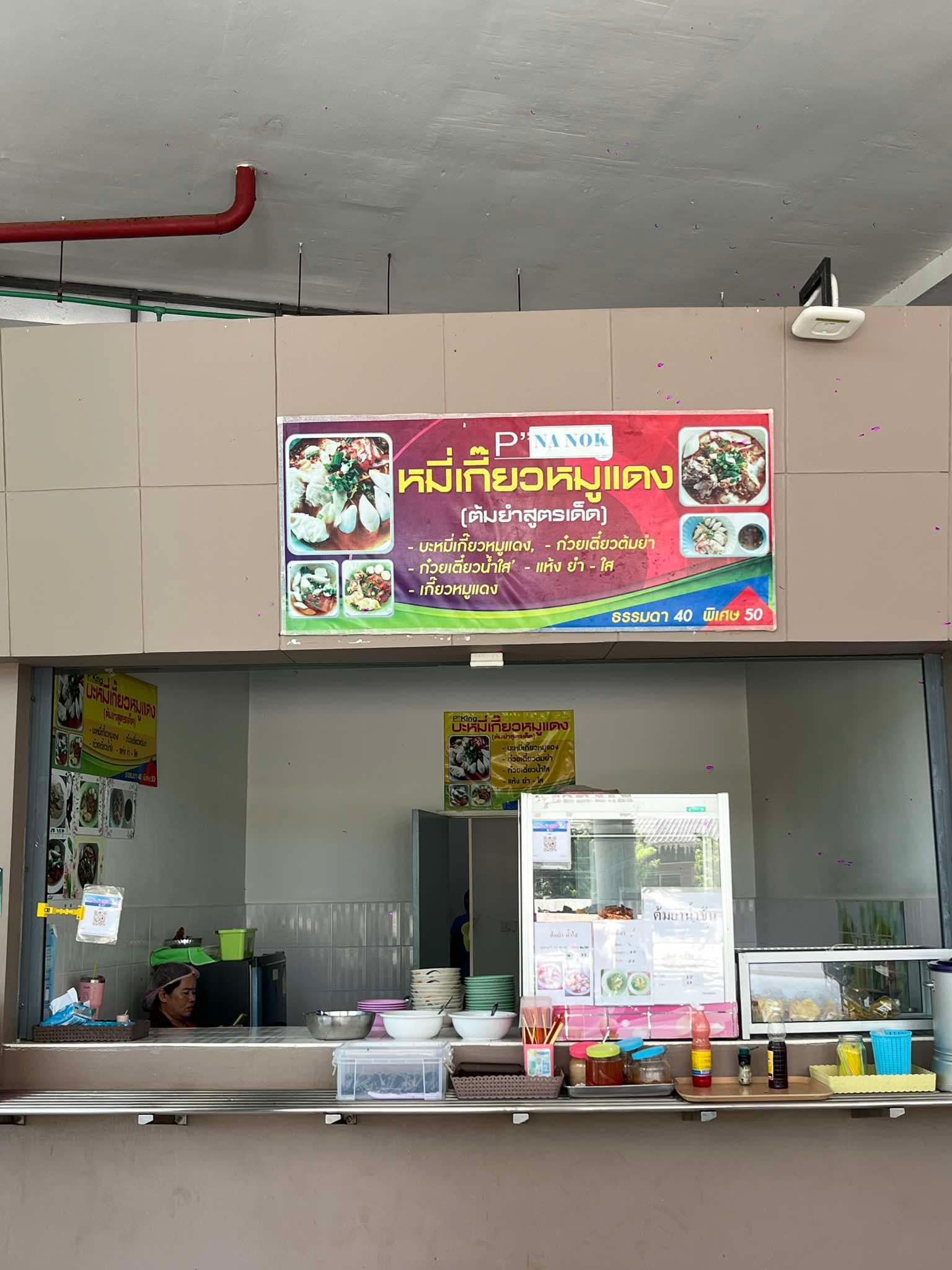
RUTS canteen in Trang
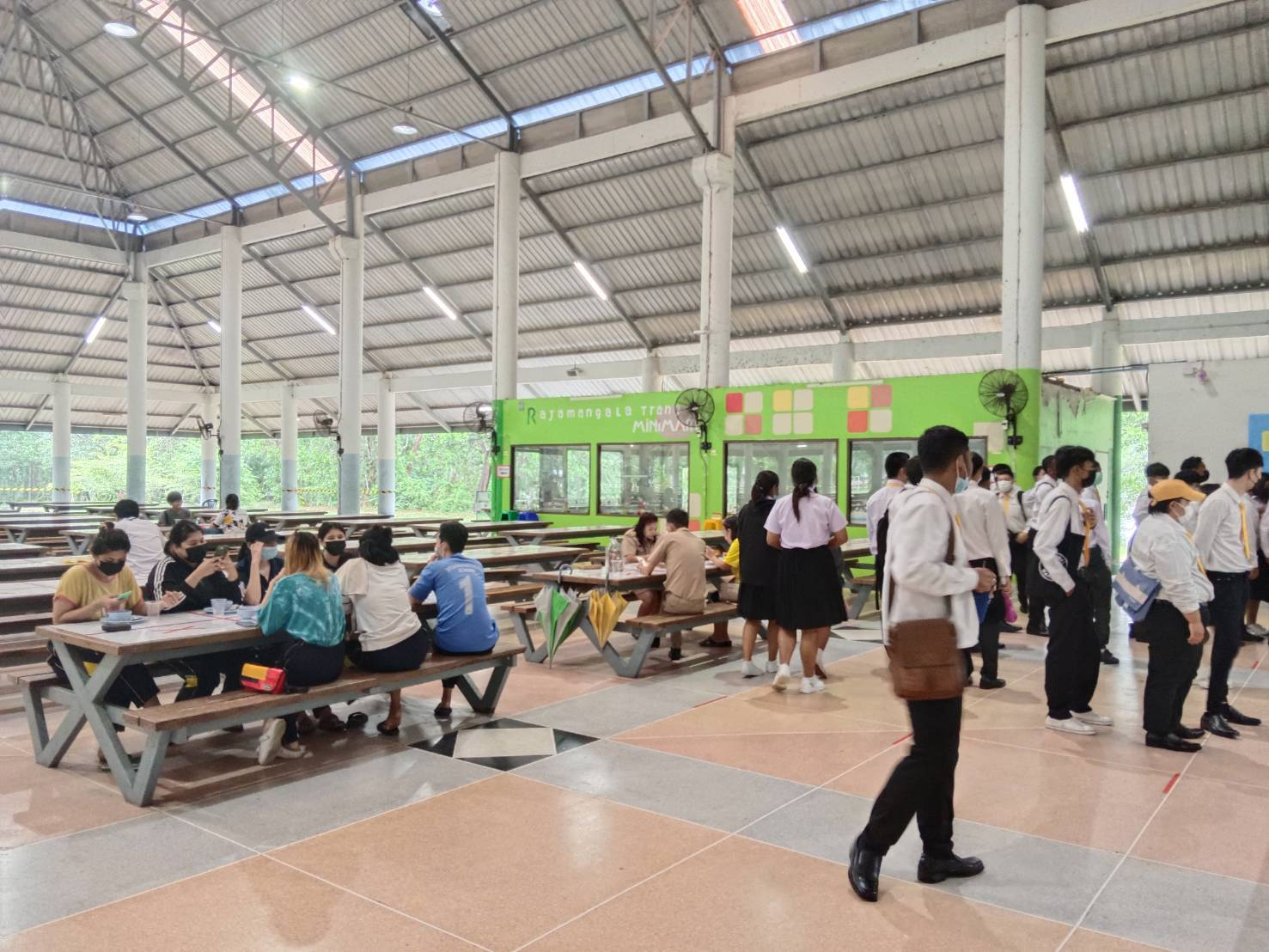 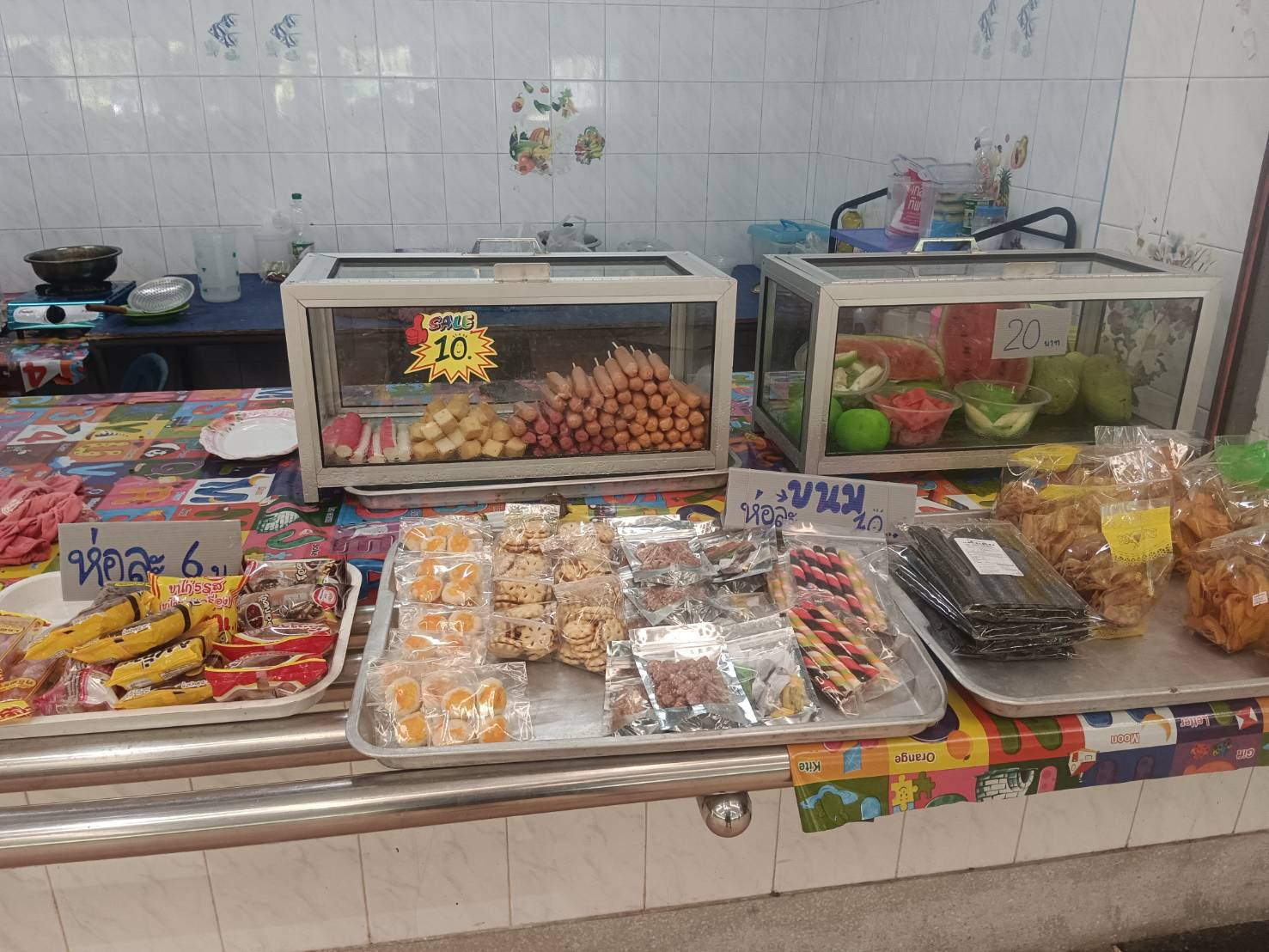 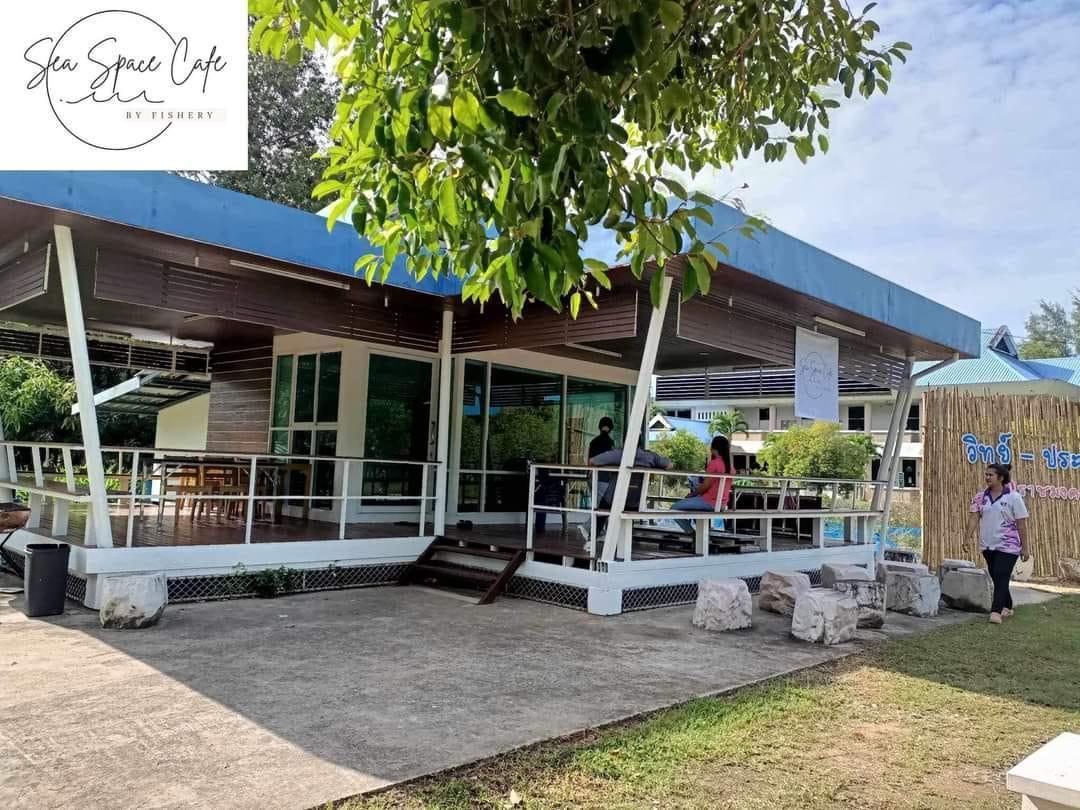 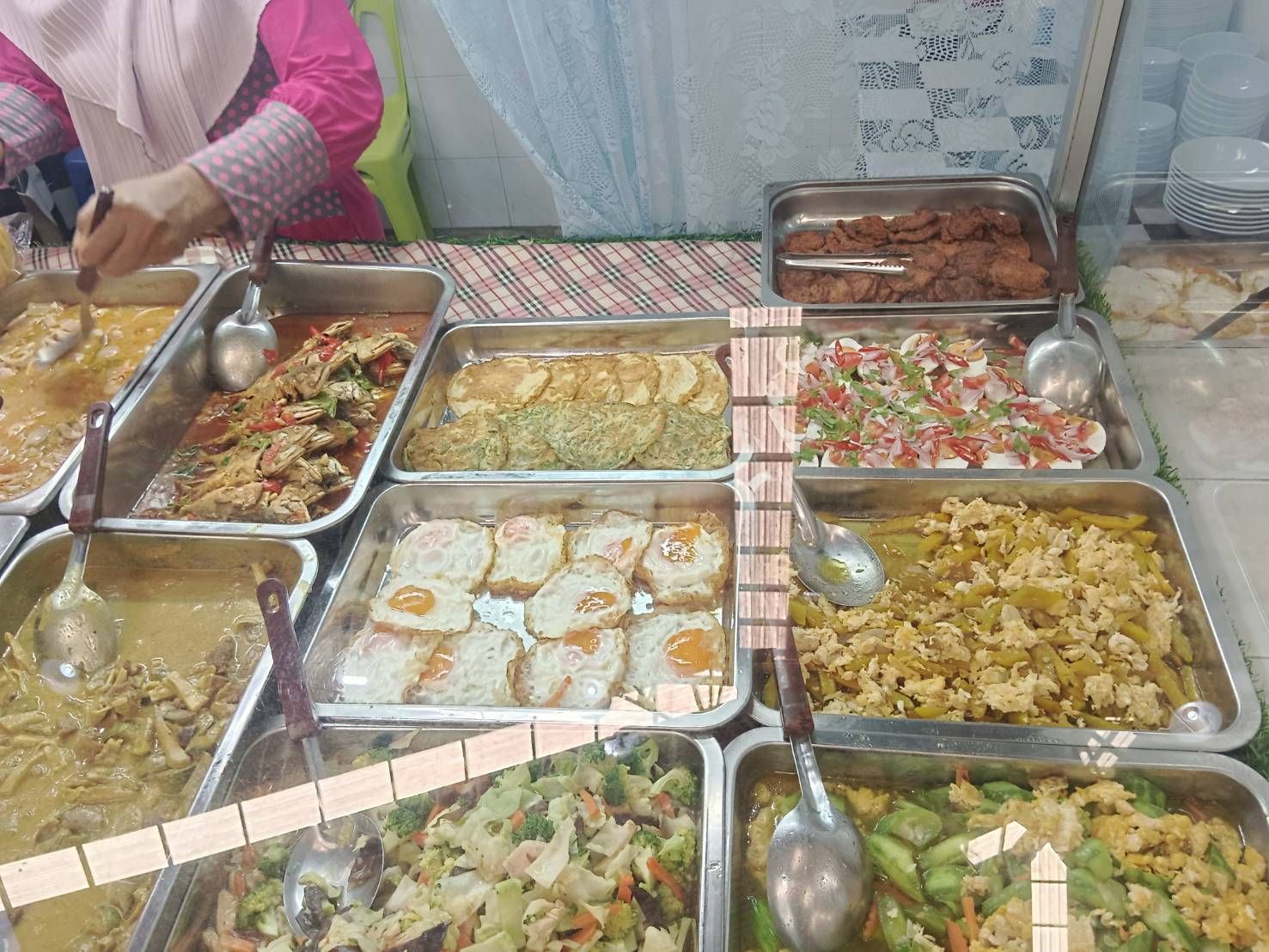
|
|---|
Furthermore, there are food service points in the form of food kiosks and beverage outlets. The leased food establishments, as well as convenience stores, are capable of serving approximately 3,641 individuals, including students and staff in the Rajamangala University of Technology Srivijaya, Songkhla area. Out of a total of 18,172 people in 2024. Which is sufficient for daily service to students and staff within the Rajamangala University of Technology Srivijaya, based on approximately 20% of university’s population utilization.
Table 3 Total amount of food waste collected from every type of food service point
|
Type of food service point |
Trash (bin) |
Weight (ton) (0.0175 ton/bin) |
|---|---|---|
|
RUTS canteen |
8 |
0.14 |
|
Faculty of Engineering canteen |
5 |
0.0875 |
|
Faculty of Industrial Education and Technology Canteen |
5 |
0.0875 |
|
RUTS canteen in Nakornsrithammarat |
8 |
0.140 |
|
RUTS canteen in Trang |
2 |
0.035 |
|
RUTS canteen in Rattaphum |
1 |
0.0175 |
|
Total |
29 |
0.5075 |
Table 4 The amount of total food waste per day and average per person calculated by 20% of the university’s population utilization
|
Organization (unit) |
Quantity (person) |
20% of population |
Total of food waste per day (ton) |
food waste per unit per day (ton) |
|---|---|---|---|---|
|
Head office |
323 |
65 |
0.5075 (Average per person is around 0.000139 ton) (calculated by 20% consumers) |
0.009 |
|
Faculty of Industrial Education and Technology |
1,145 |
229 |
0.032 | |
|
Faculty of Business Administration |
4,614 |
923 |
0.128 | |
|
Faculty of Engineering |
3,917 |
784 |
0.109 | |
|
Faculty of Liberal Arts |
1,698 |
340 |
0.047 | |
|
Faculty of Architecture |
756 |
152 |
0.021 | |
|
Faculty of Science and Technology |
562 |
113 |
0.016 | |
|
Faculty of Agriculture |
877 |
176 |
0.025 | |
|
Faculty of Management Technology |
1,403 |
281 |
0.039 | |
|
Faculty of Veterinary Medicine |
518 |
104 |
0.015 | |
|
Faculty of Agro-Industry |
105 |
21 |
0.003 | |
|
Faculty of Science and Fisheries Technology |
277 |
56 |
0.008 | |
|
Faculty of Engineering and Technology |
512 |
103 |
0.014 | |
|
College of Hospitality and Tourism |
387 |
78 |
0.010 | |
|
College of Industrial Technology and Management |
544 |
109 |
0.016 | |
|
Rattaphum College |
534 |
107 |
0.015 | |
|
Total |
18,172 |
3,641 |
0.507 |
Food waste management is a well-structured process. Food waste is separated from other types of waste, and different types of waste are collected in clearly labeled containers according to established standards. The average daily quantity of food waste generated at every stage of food production processes is approximately 0.507 tons, as reported by the service provider, who counts the number of waste containers transported from the operational areas each day. Each waste container has a capacity of 0.0175 tons). Data collected from every canteen, that was shown in table 3. In total, the amount of food waste in the university was 29 containers per day. The details of the number were shown in table 4.
The food waste is effectively managed by repurposing it as animal feed. External operators from outside the university oversee this waste management process, which is regulated by a central department responsible for managing leasing activities at the university, aimed at creating various forms of benefits.
Food waste management in Songkhla campus
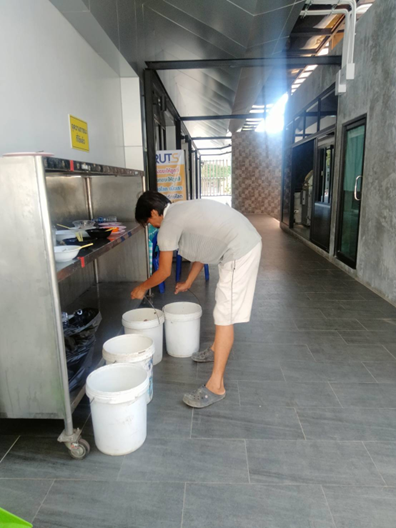
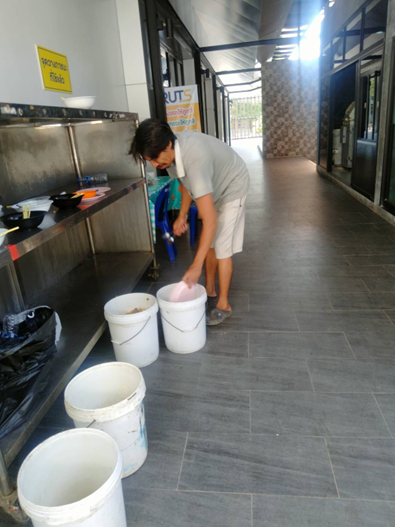
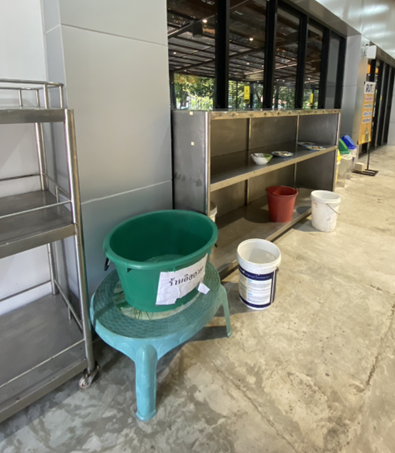
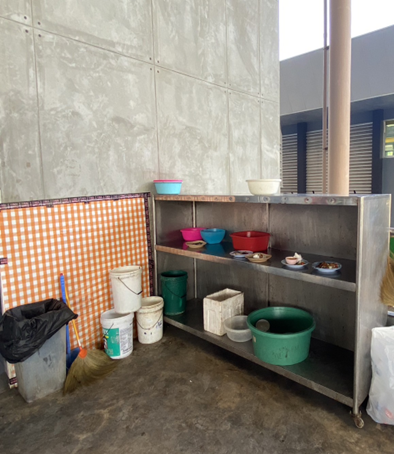
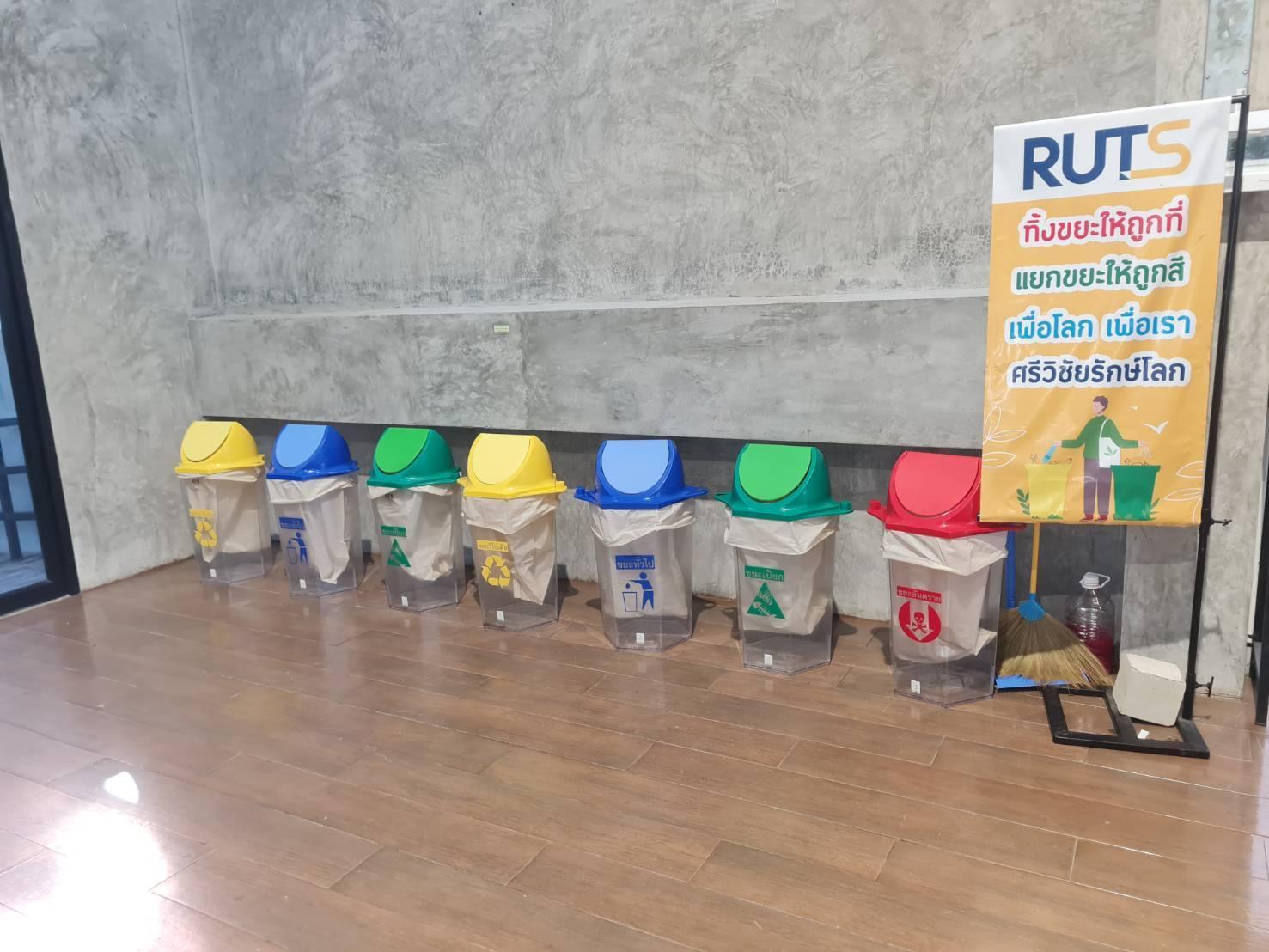
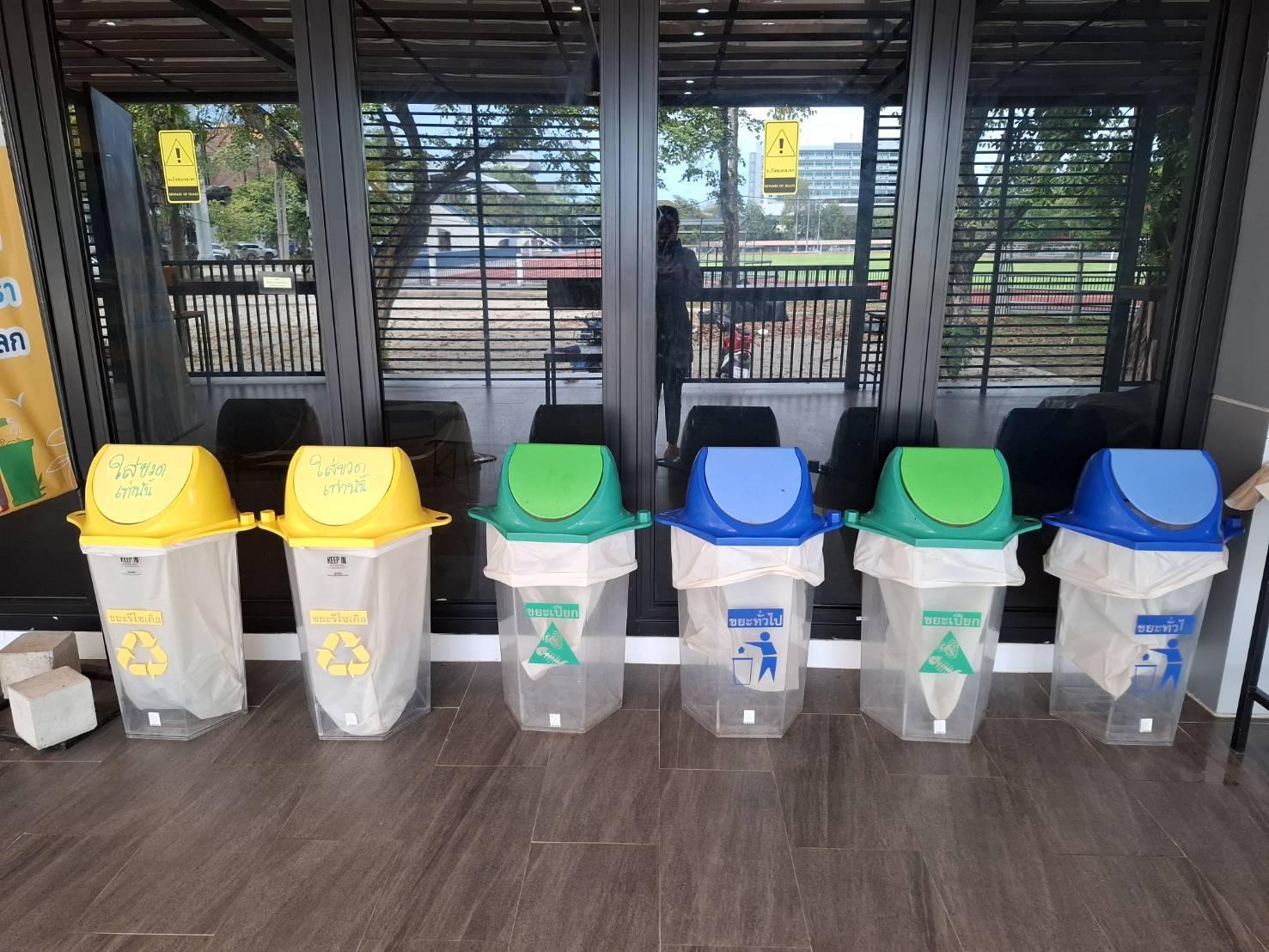
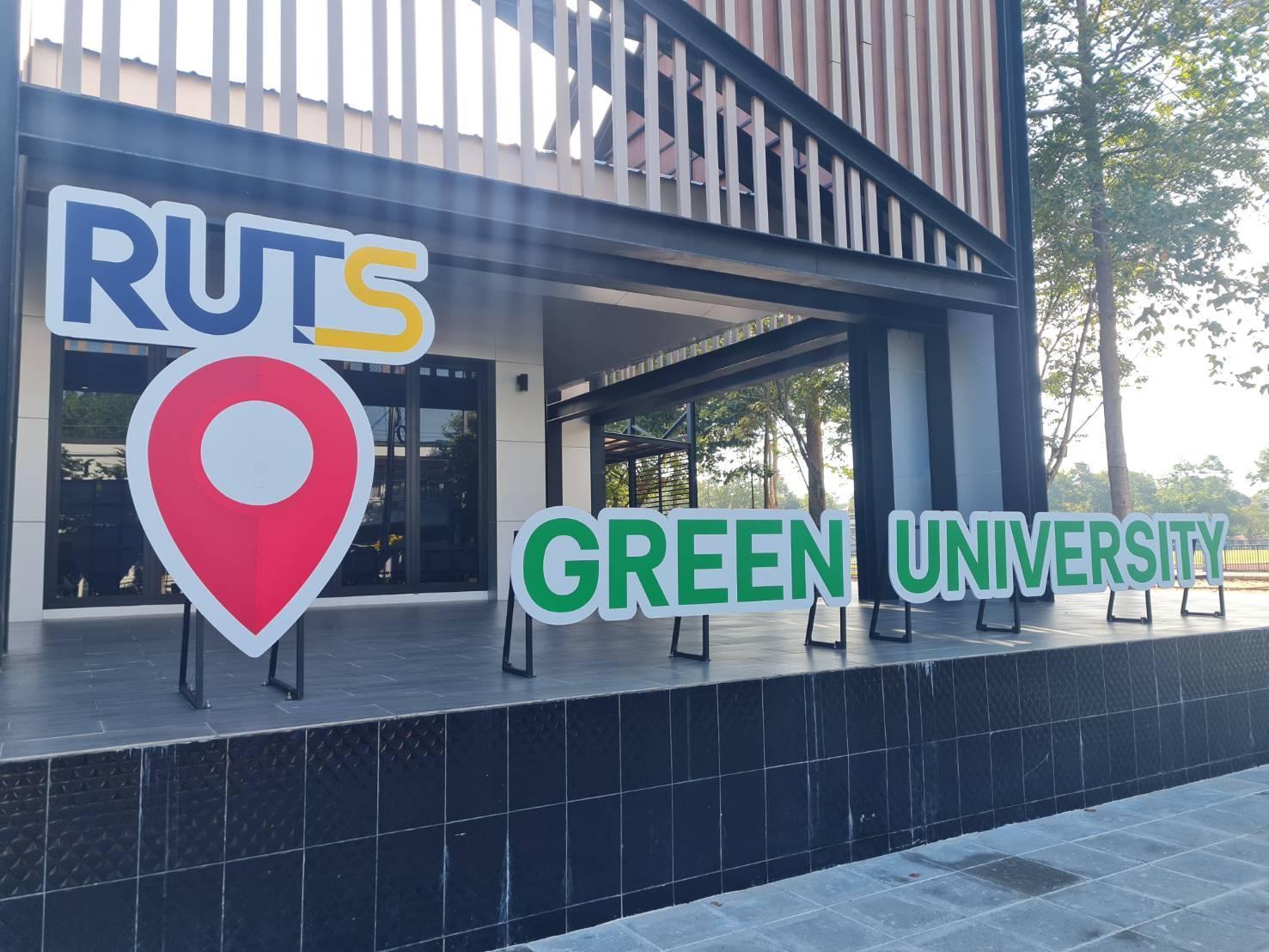
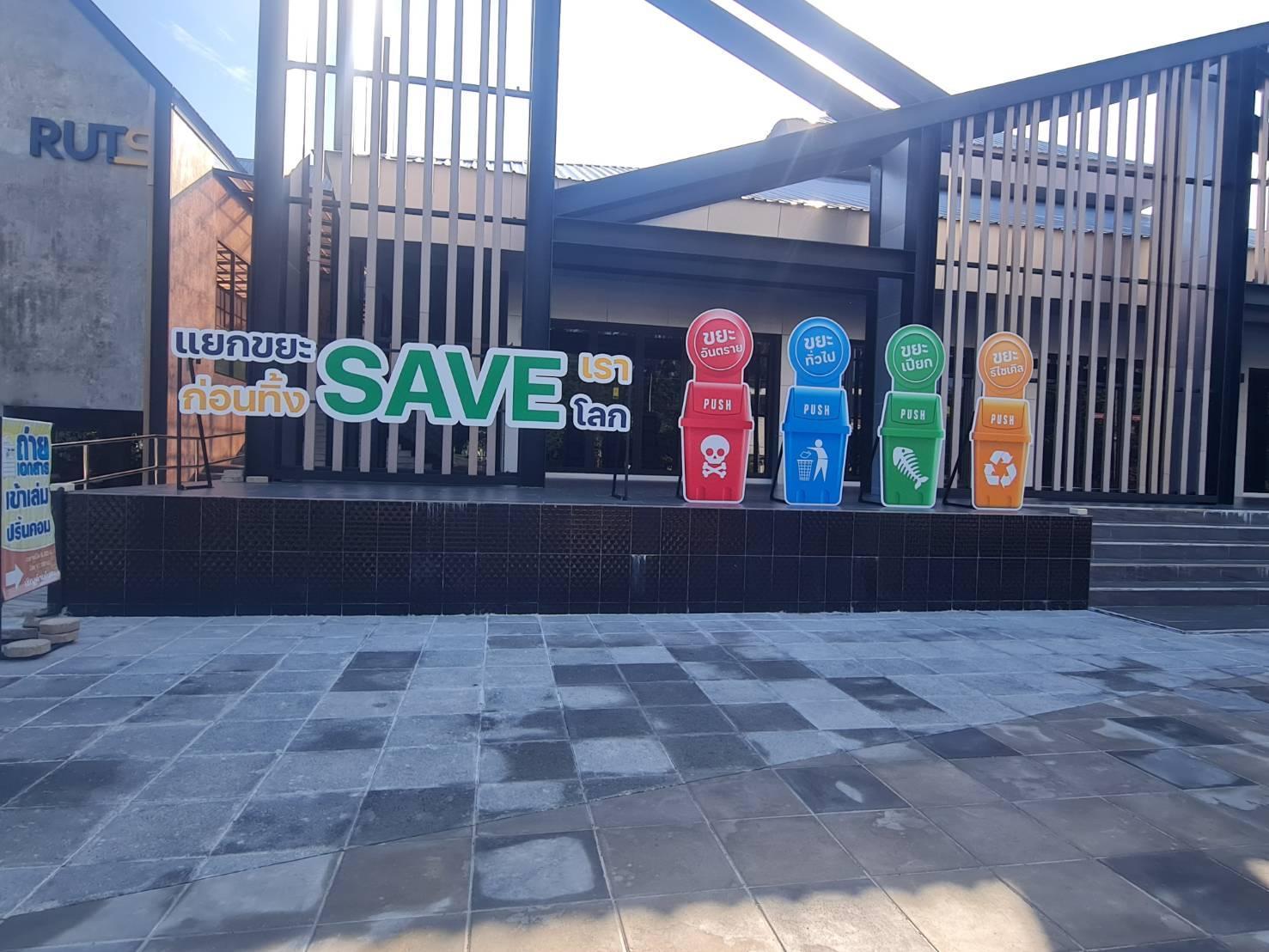
Food waste management in Nakornsirthammarat 1st place (Saiyai) 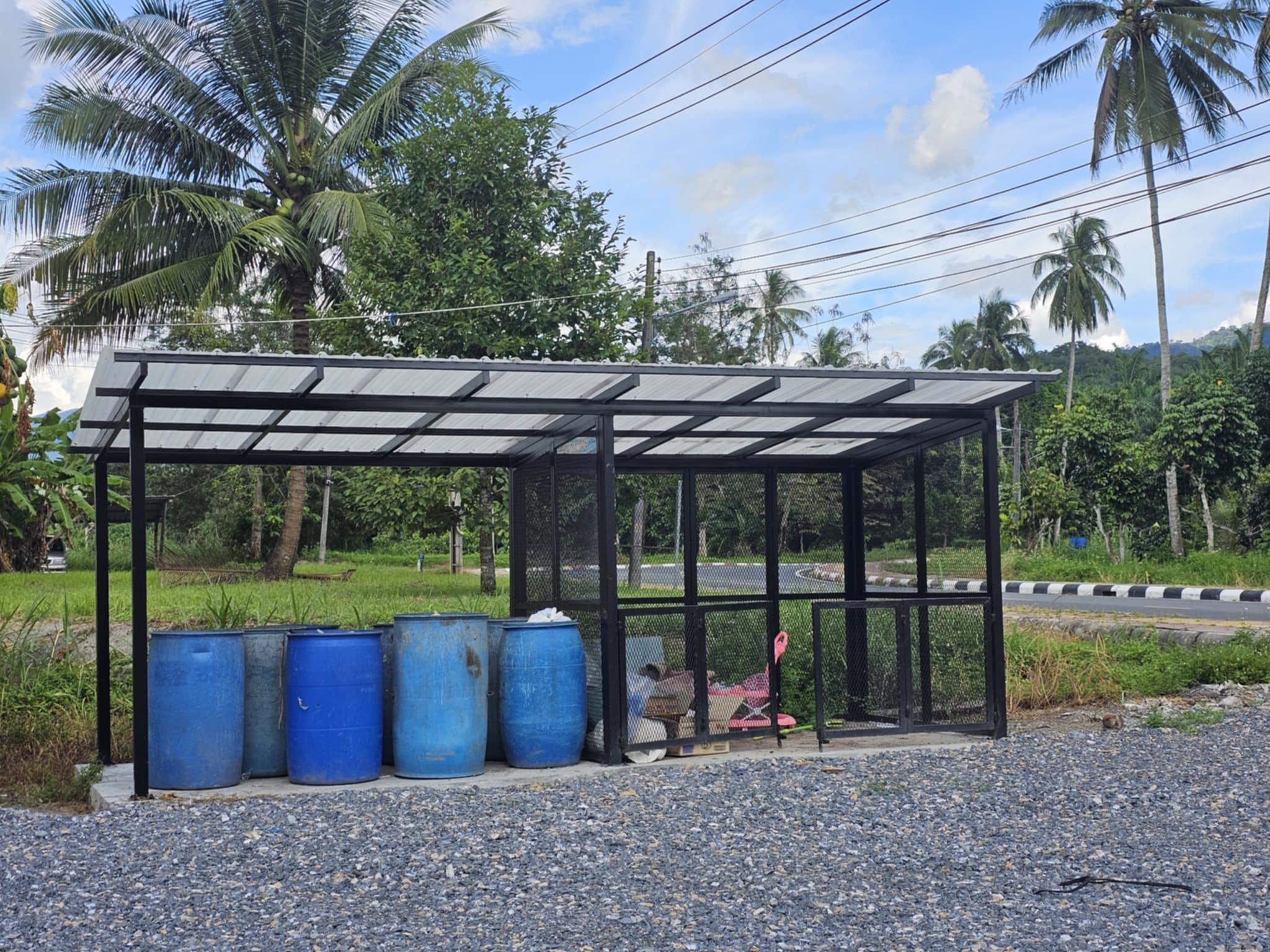
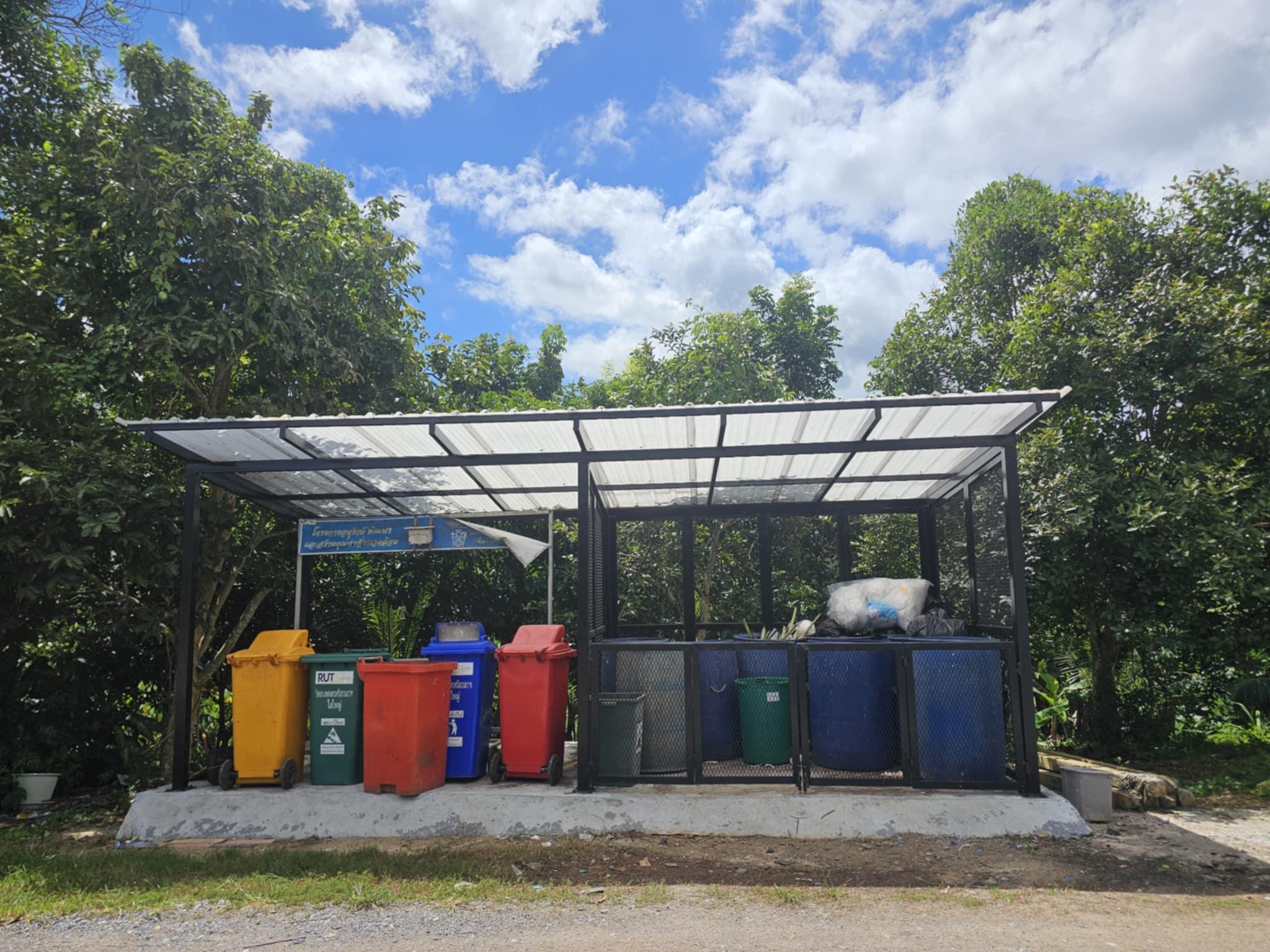
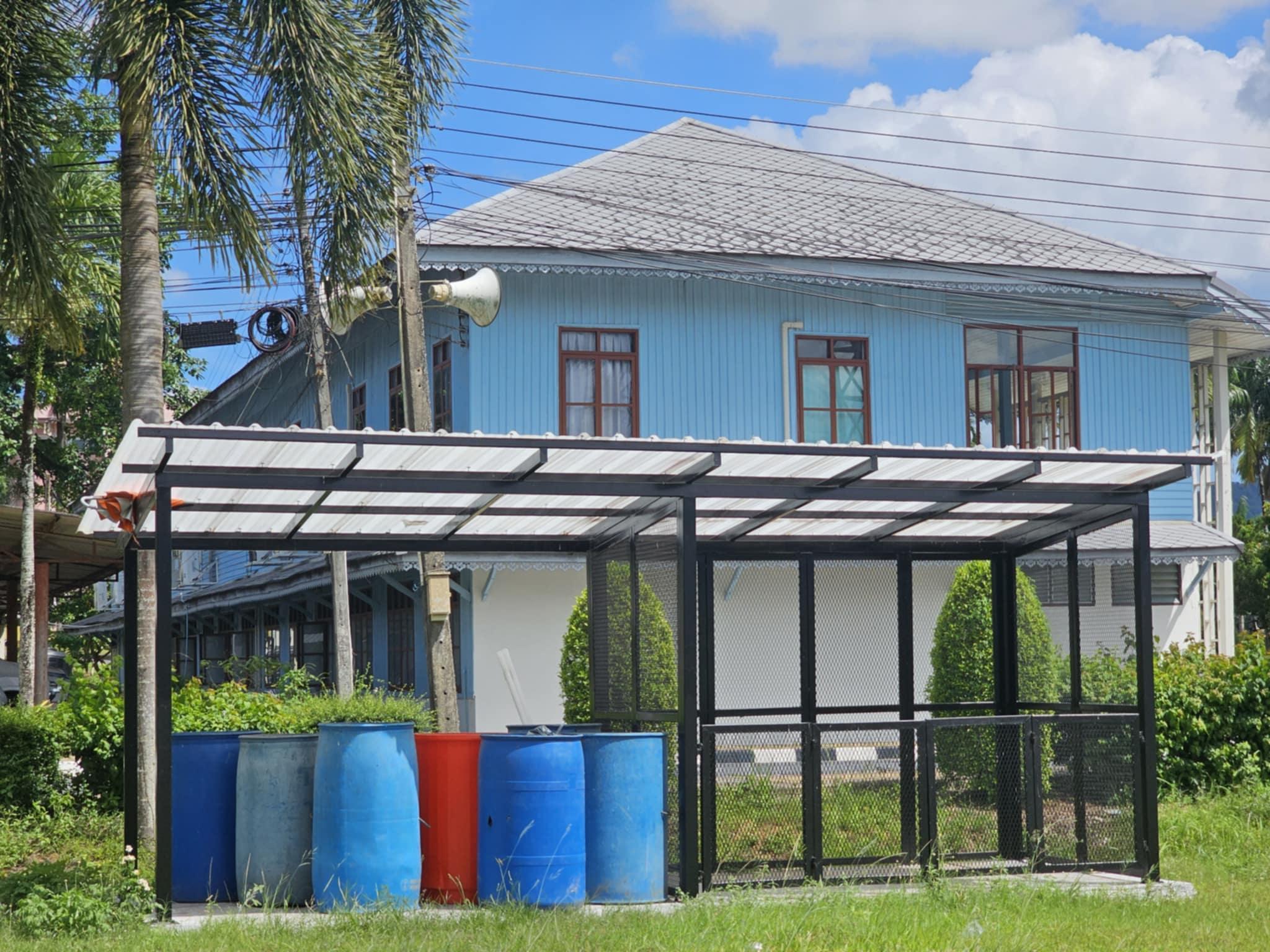
Food waste management in Nakornsirthammarat 2st place (Thungyai)
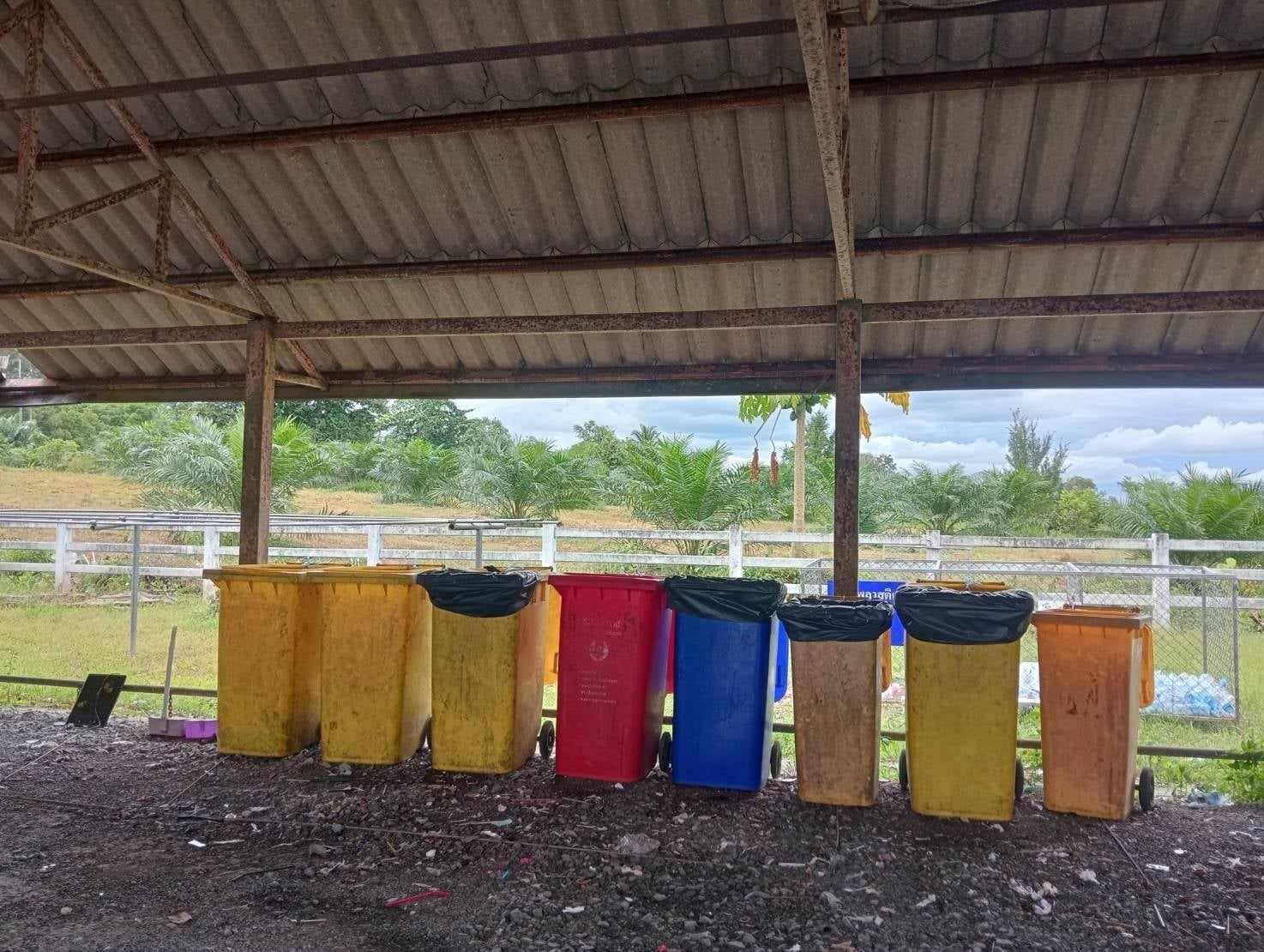
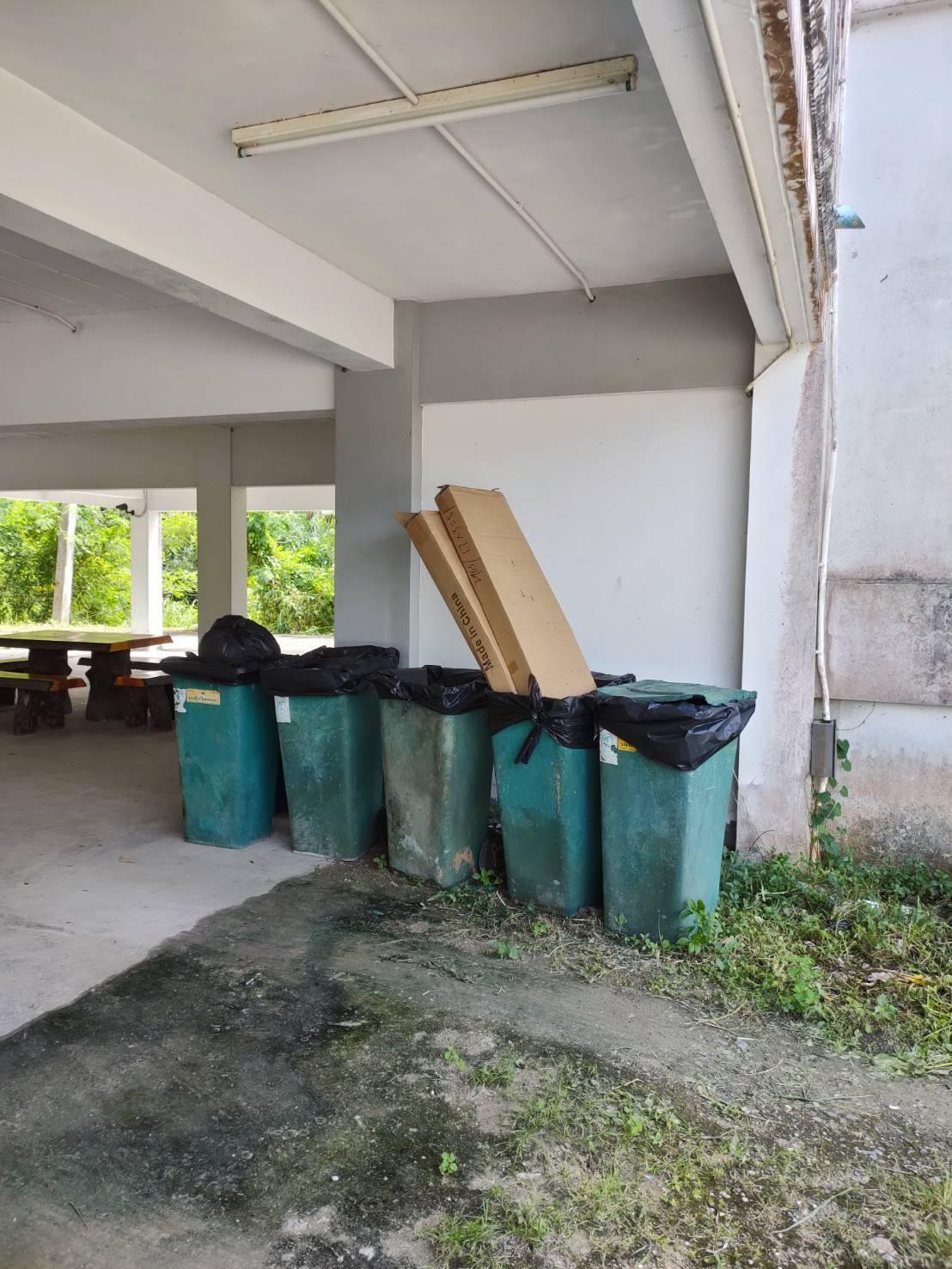
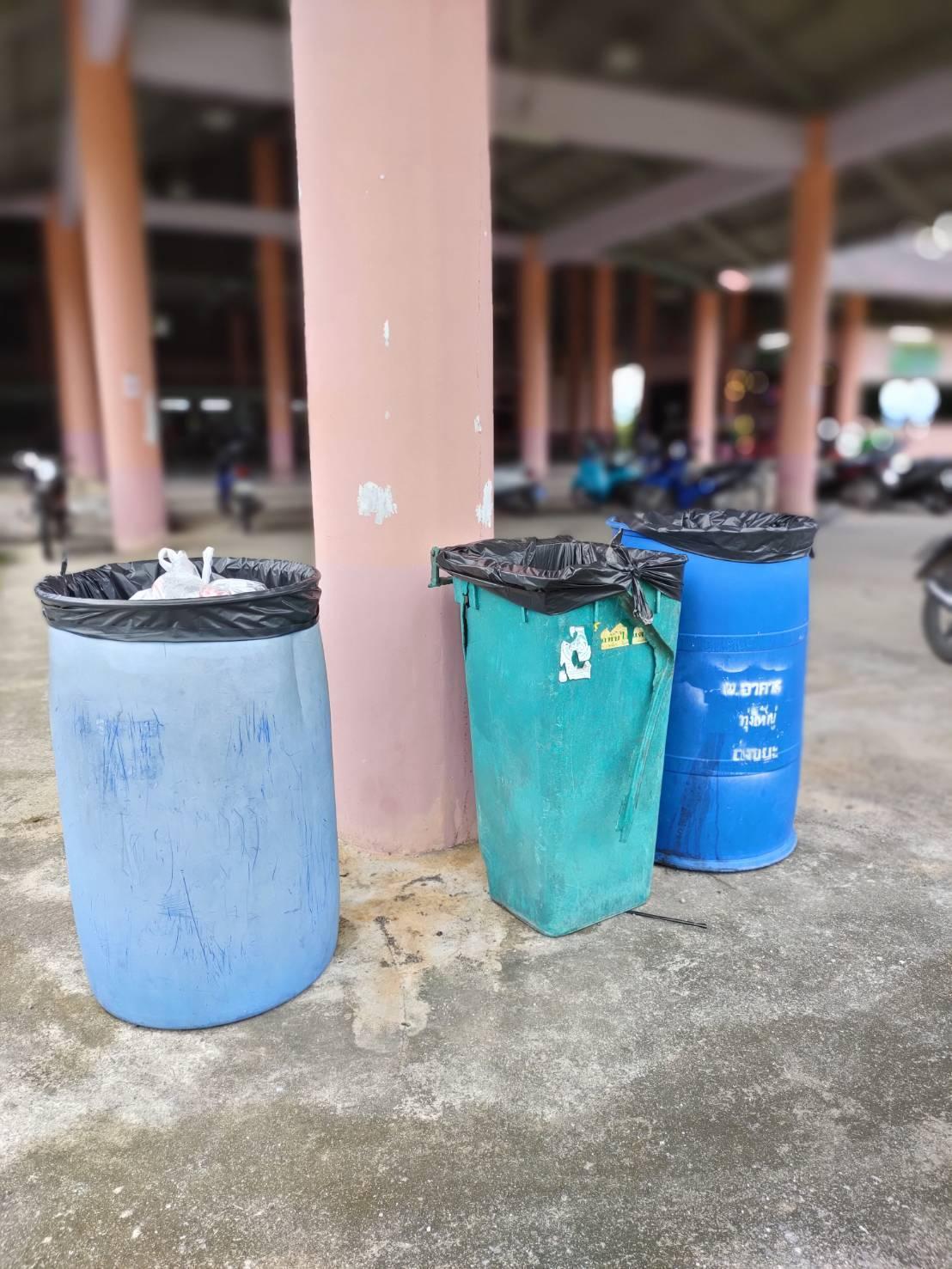
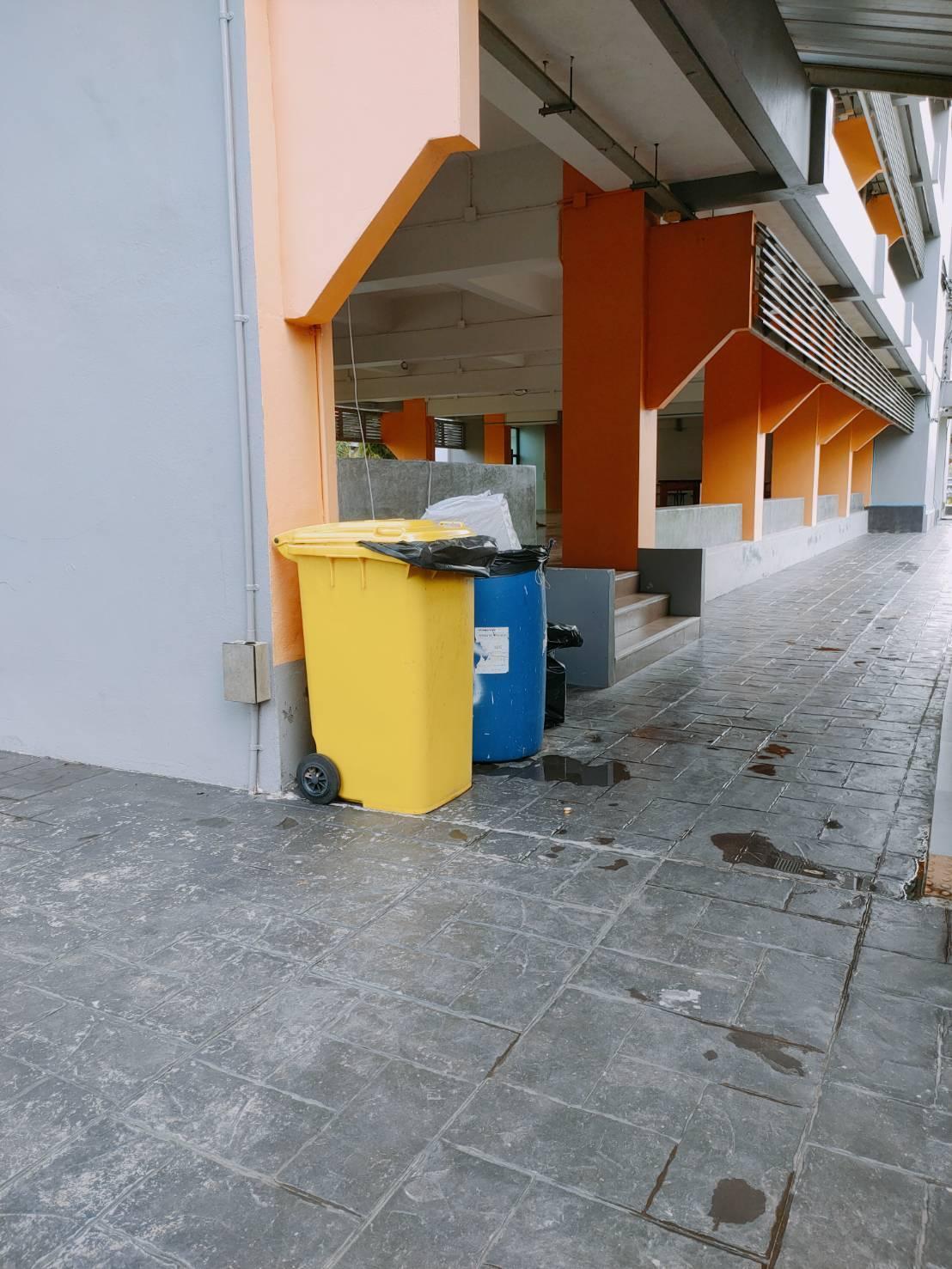
Food waste management in Nakornsirthammarat 3st place (Kanom)
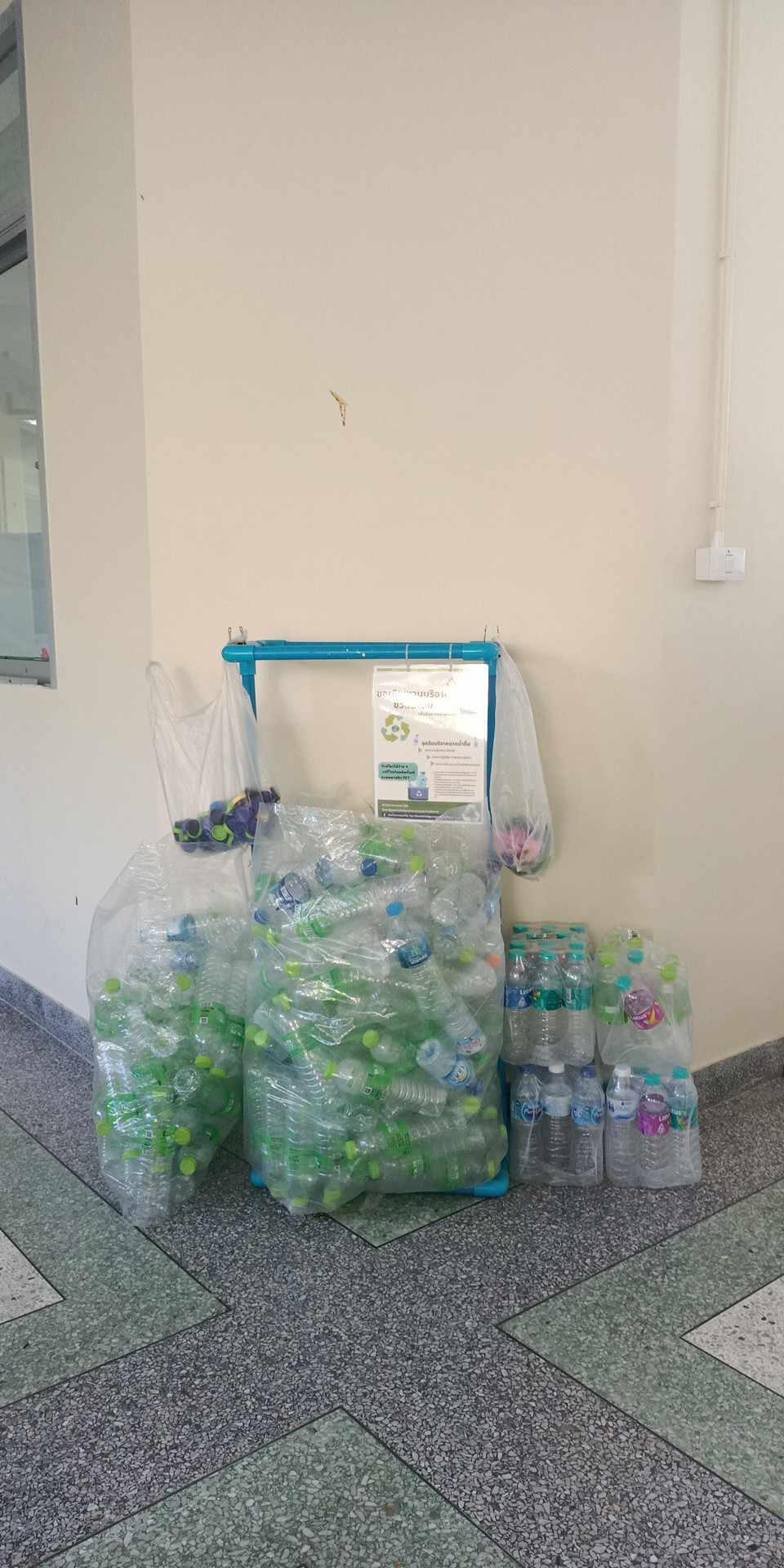
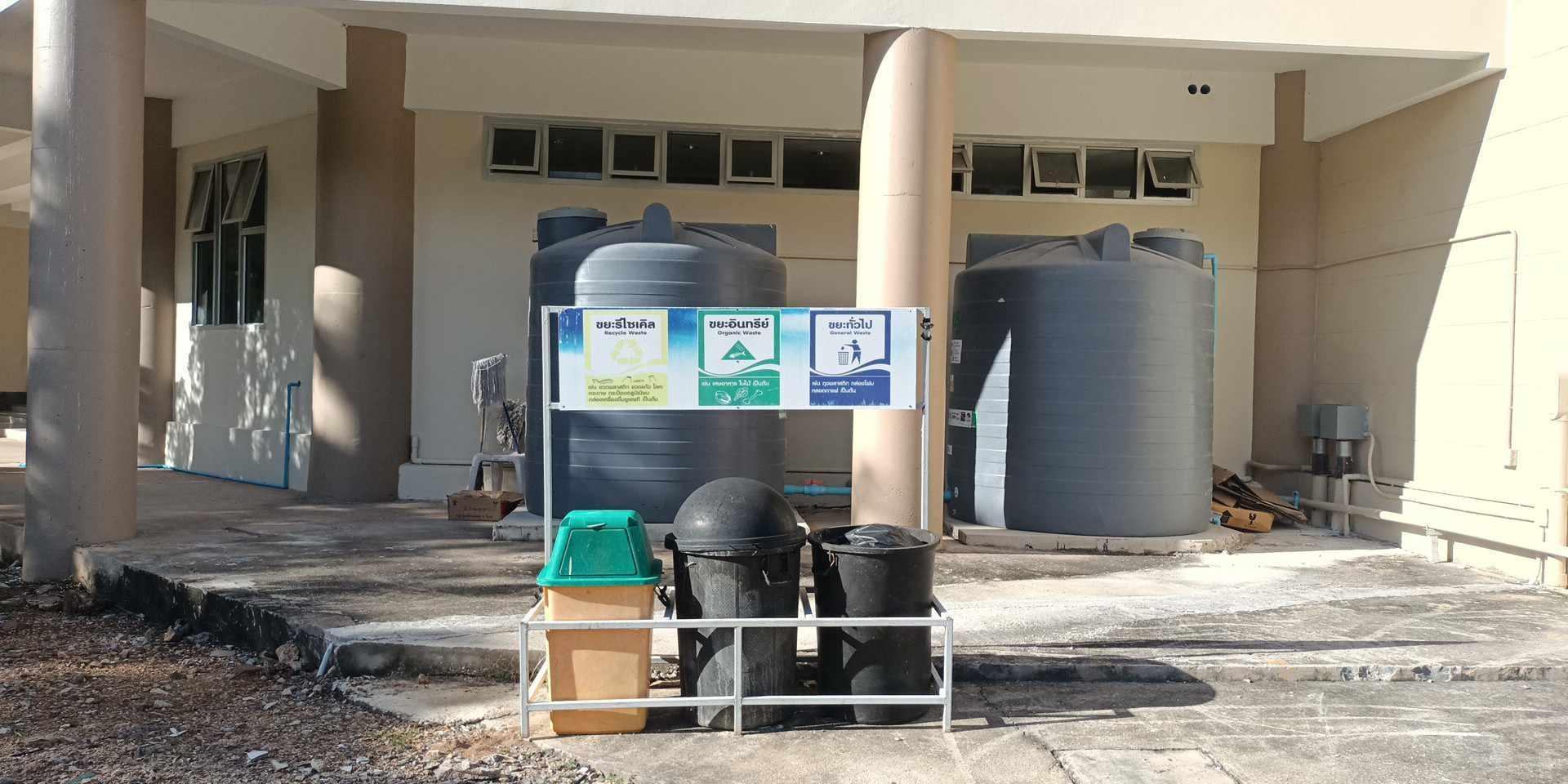
Food waste management in Trang campus
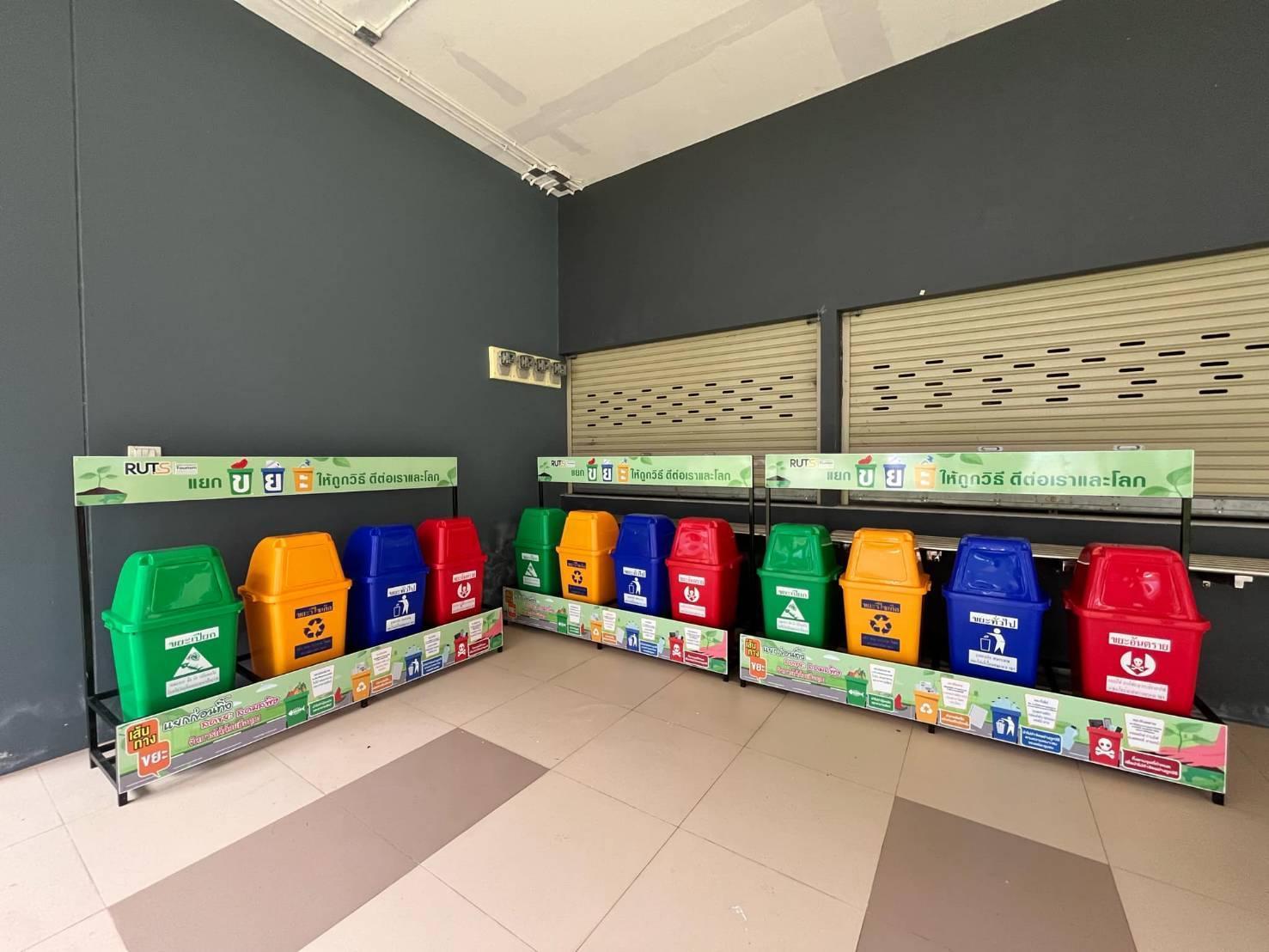
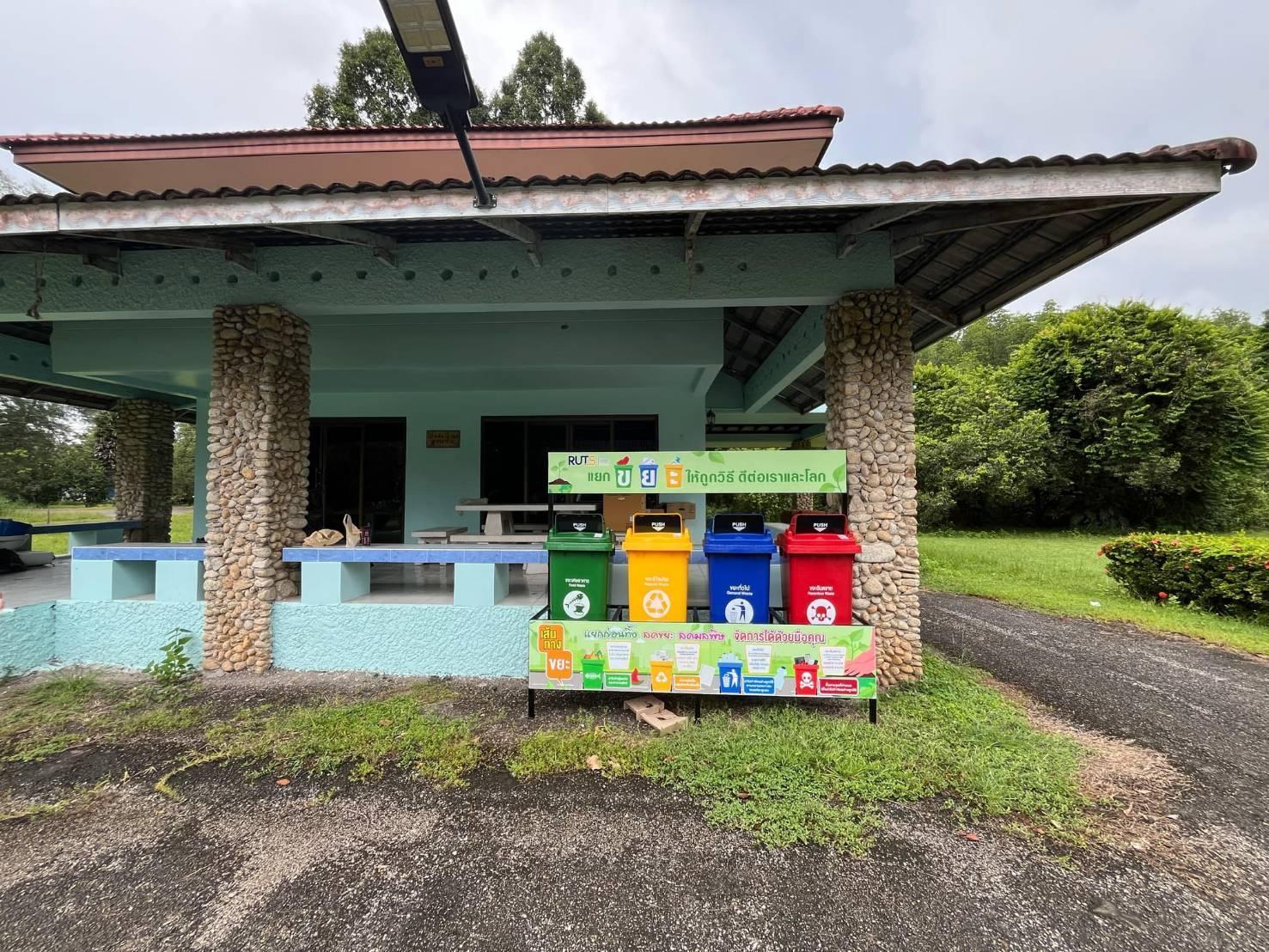
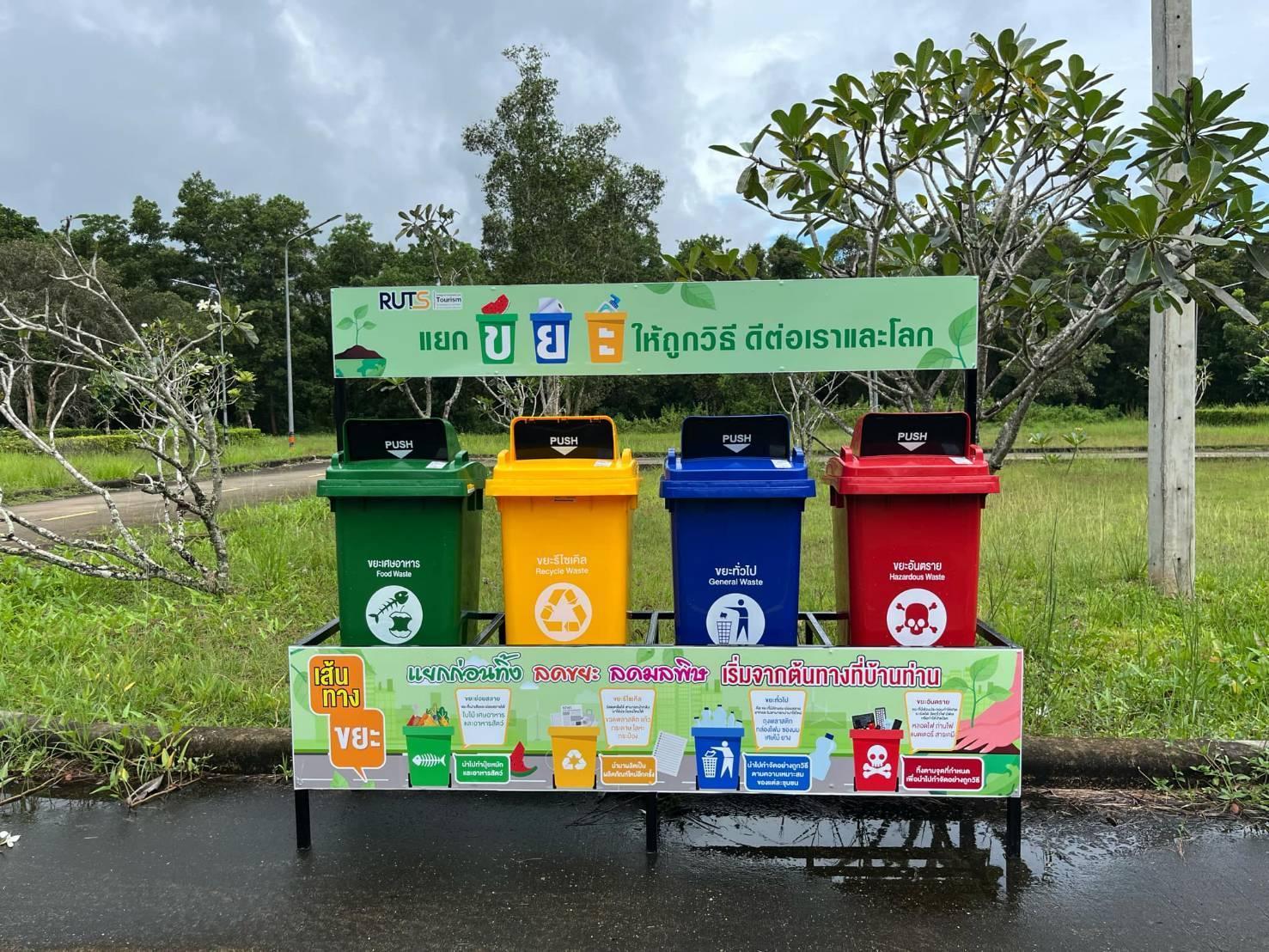
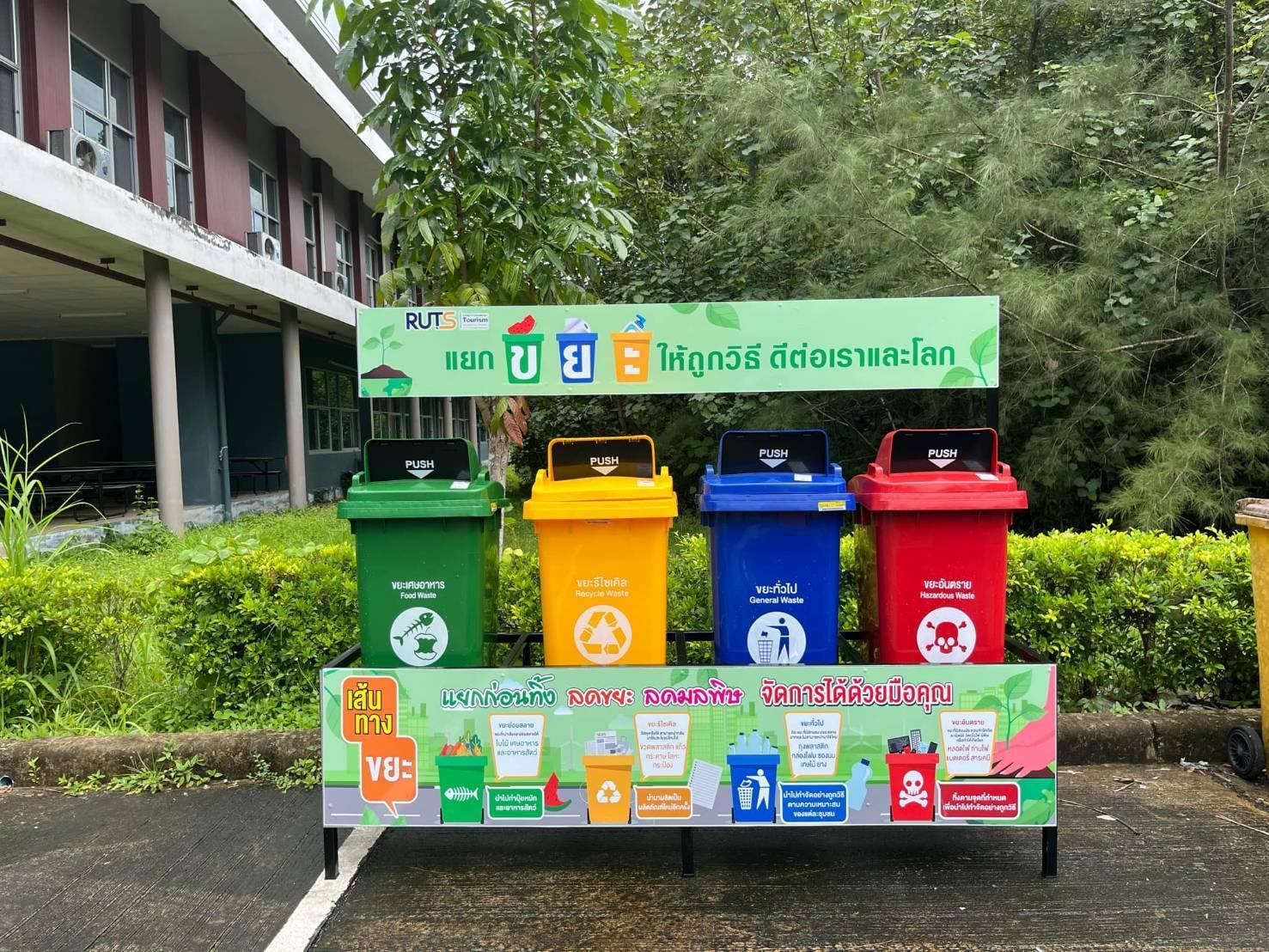
Related Links:
https://drive.google.com/drive/folders/19arav5Oi_TkbRv_Wy_FWExcquqpn8ryC?usp=drive_link
Outreach and Engagement
Title: The students from the Faculty of Agriculture, RUTS (Thong Yai campus) have embarked on an innovative project to repurpose food waste, transforming it into a valuable resource.
Reporters: Dr. Wichulada Thavaroj, Ms. Panyaras Luekhajon, Mrs. Rungtip Wuttanaworakit, Asst. Prof. Noppadon Podkumnerd, Asst. Prof. Jasada Romyen ,Mr. Jessada Montralak
Evidence Date: during 2023 Jan-Dec
Related SDGs:

Related Indicators: Please put related SDGs indicators
Details: Supporting details and pictures
The students from the Faculty of Agriculture, RUTS (Thong Yai campus) have embarked on an innovative project to repurpose food waste, transforming it into a valuable resource. They collect discarded food, which would otherwise contribute to landfill waste, and use it as feed for raising worms. This process not only helps in managing waste but also contributes to sustainable agricultural practices. The larvae used for digesting organic waste are known as BSF larvae or Black Soldier Fly larvae. During their larval stage, these little creatures focus on eating and consuming as much as possible to build up energy throughout their lives. This means they require a significant amount of food. This relationship creates a mutual benefit: the larvae need food to grow, while humans have food scraps that need disposal. By utilizing these scraps, we can prevent them from contributing to general waste and environmental issues. This collaboration not only aids in waste management but also helps address global environmental challenges. Together, we can create a more sustainable system. Additionally, the larvae are fed to chickens, creating a closed-loop system that maximizes resource efficiency. The chickens, in turn, provide a protein source for students and university staff. This initiative not only meets the nutritional needs of the campus community but also allows students to gain practical experience in sustainable farming methods.
Furthermore, the surplus chicken meat is sold to the local community, creating an additional revenue stream for the students. This entrepreneurial approach not only supports the university’s sustainability goals but also equips students with valuable skills in food production and business management, fostering a sense of community and environmental responsibility. Therefore, this project exemplifies how innovative thinking can turn waste into a source of sustenance and income.
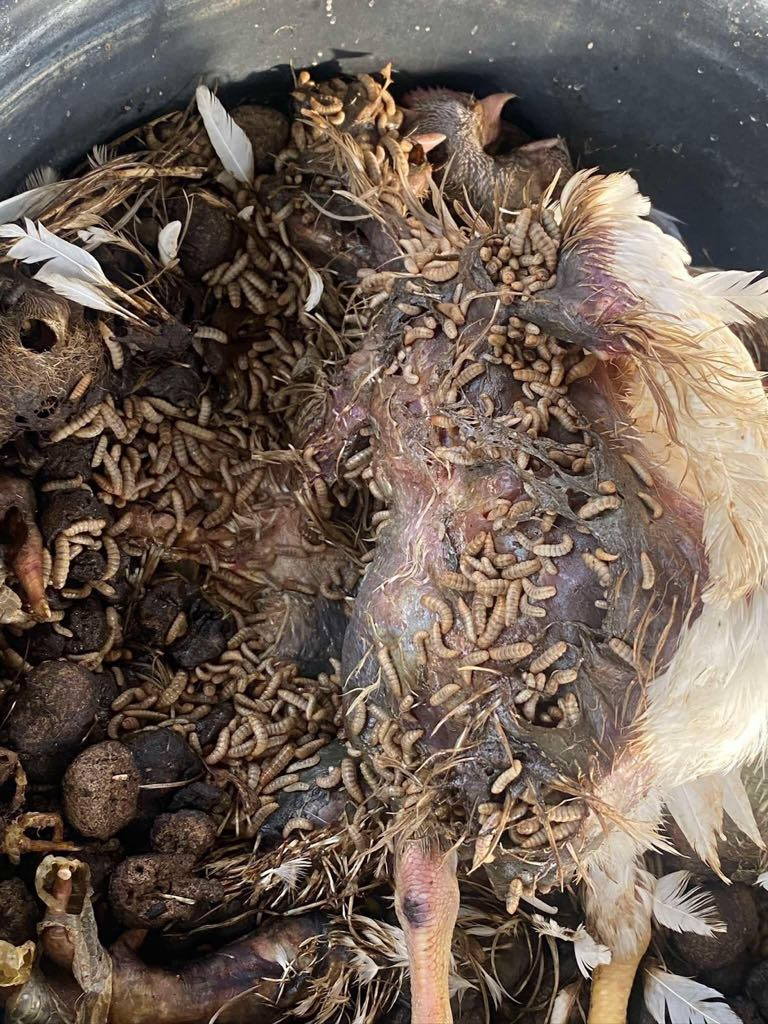
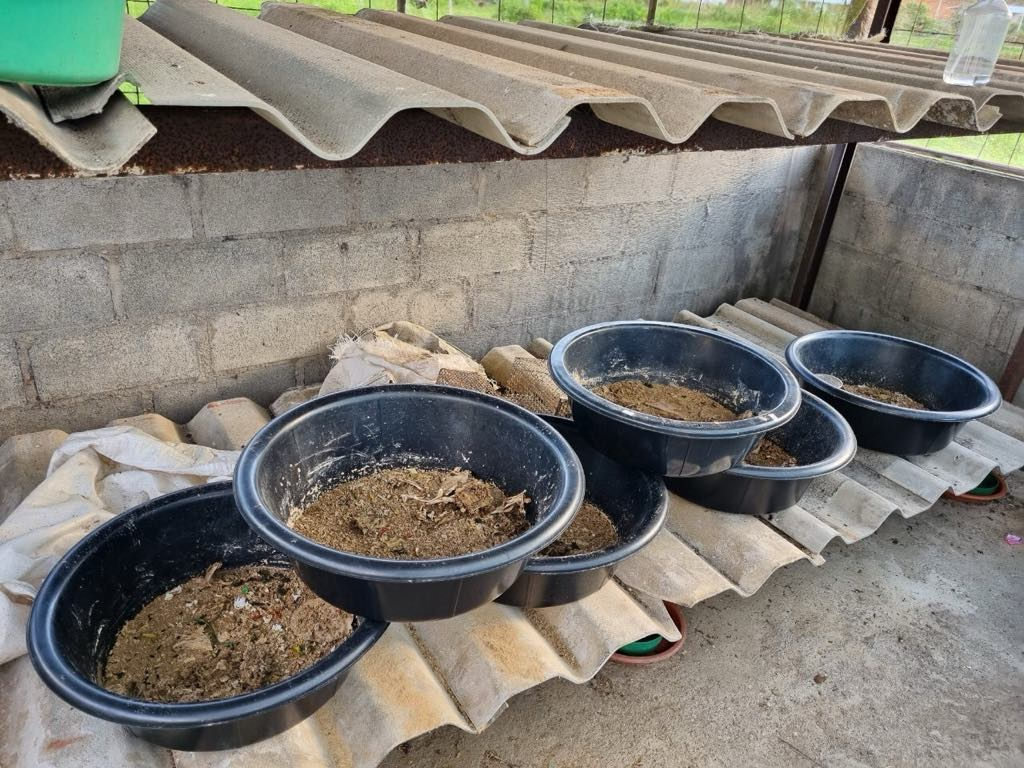
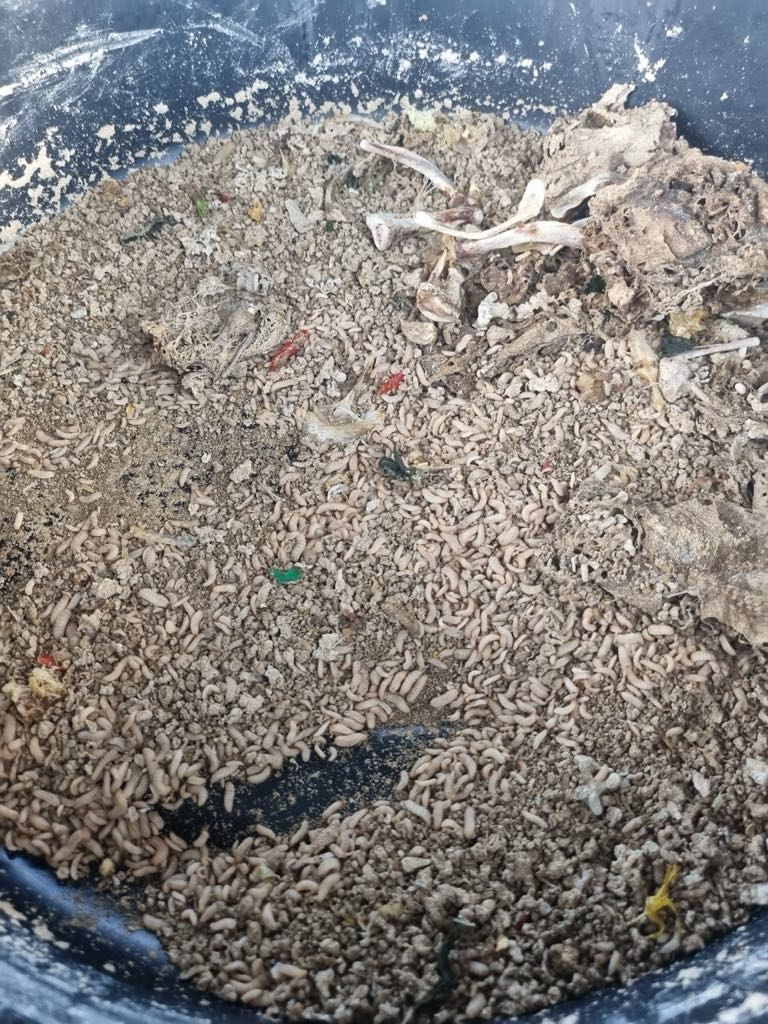
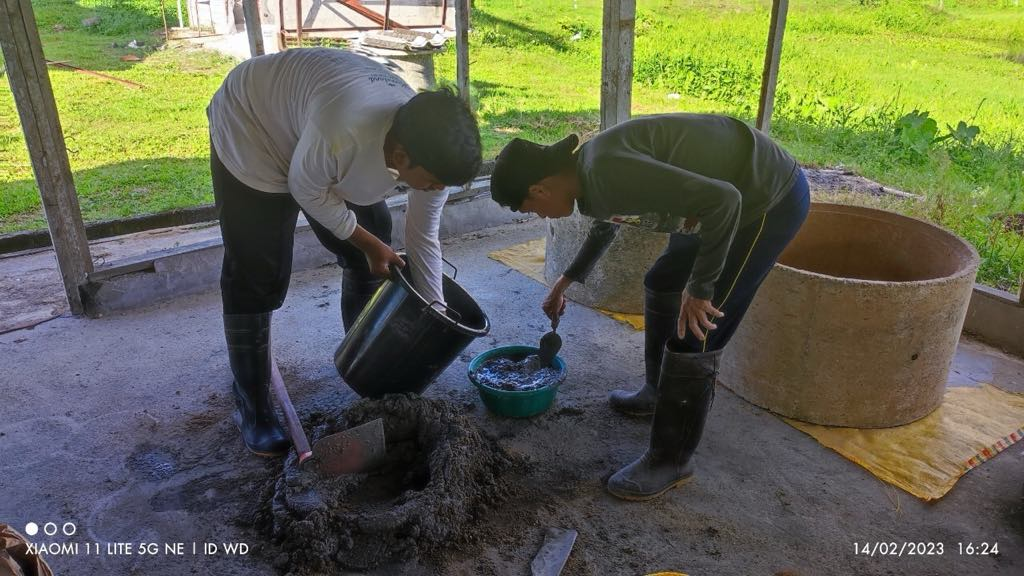
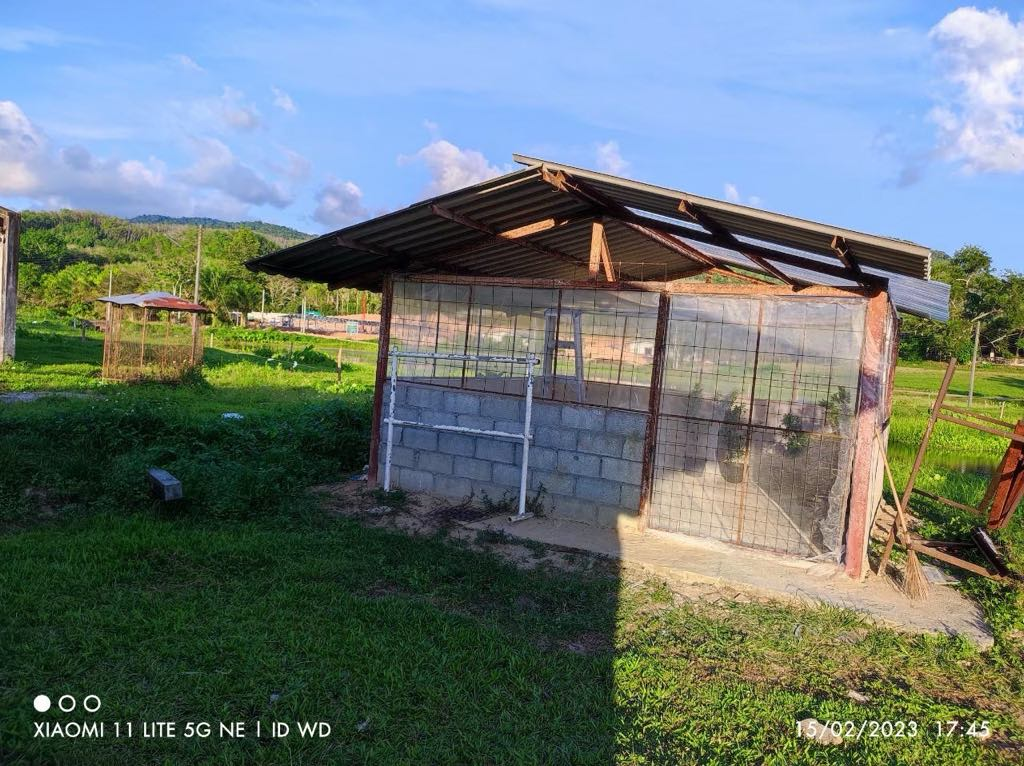
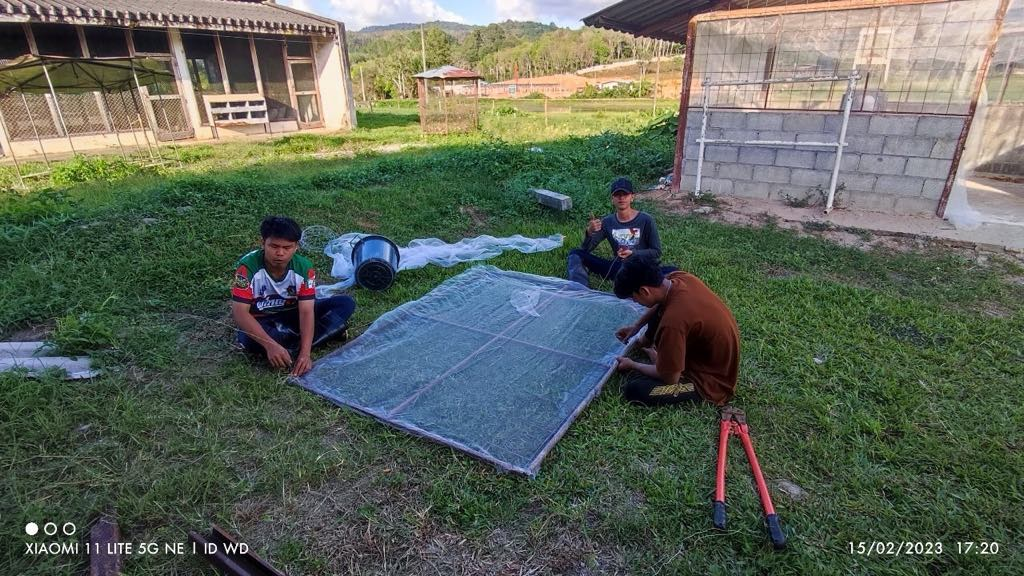
Related Links:
https://www.facebook.com/watch/?mibextid=WC7FNe&v=646528510942079&rdid=nQNSVcrUsWXiY8dp
Teaching and Learning
Title: Students in the Food and Nutrition program at the Faculty of Liberal Arts, RUTS (Songkhla campus) have conducted an important project assessing food safety for the items sold on campus.
Reporters: Dr. Wichulada Thavaroj, Ms. Panyaras Luekhajon, Mrs. Rungtip Wuttanaworakit, Asst. Prof. Noppadon Podkumnerd, Asst. Prof. Jasada Romyen ,Mr. Jessada Montralak
Evidence Date: during 2024 Jan-Dec
Related SDGs:

Related Indicators: Please put related SDGs indicators
Details: Supporting details and pictures
Students in the Food and Nutrition program at the Faculty of Liberal Arts, RUTS (Songkhla campus) have conducted an important project assessing food safety for the items sold on campus. This initiative is part of their coursework in sanitation and food safety, where they actively test various food products for safety concerns.
The students examined food additives, such as nitrates in processed meats, antifungal agents in pickled fruits and vegetables, and formaldehyde in fresh seafood. They also investigated microbial contamination in food, specifically looking for coliform bacteria in water and food packaging.
Through this hands-on experience, students gained valuable insights into which food sources are safe and which may pose health risks. The project fostered a collaborative environment where students could discuss and develop strategies to prevent foodborne illnesses and ensure safe consumption practices. This initiative enhanced their understanding of food safety standards and equipped them with practical skills that will be vital in their future careers in food and nutrition. It underscores the importance of food safety in protecting public health and empowers students to contribute positively to their community’s well-being.
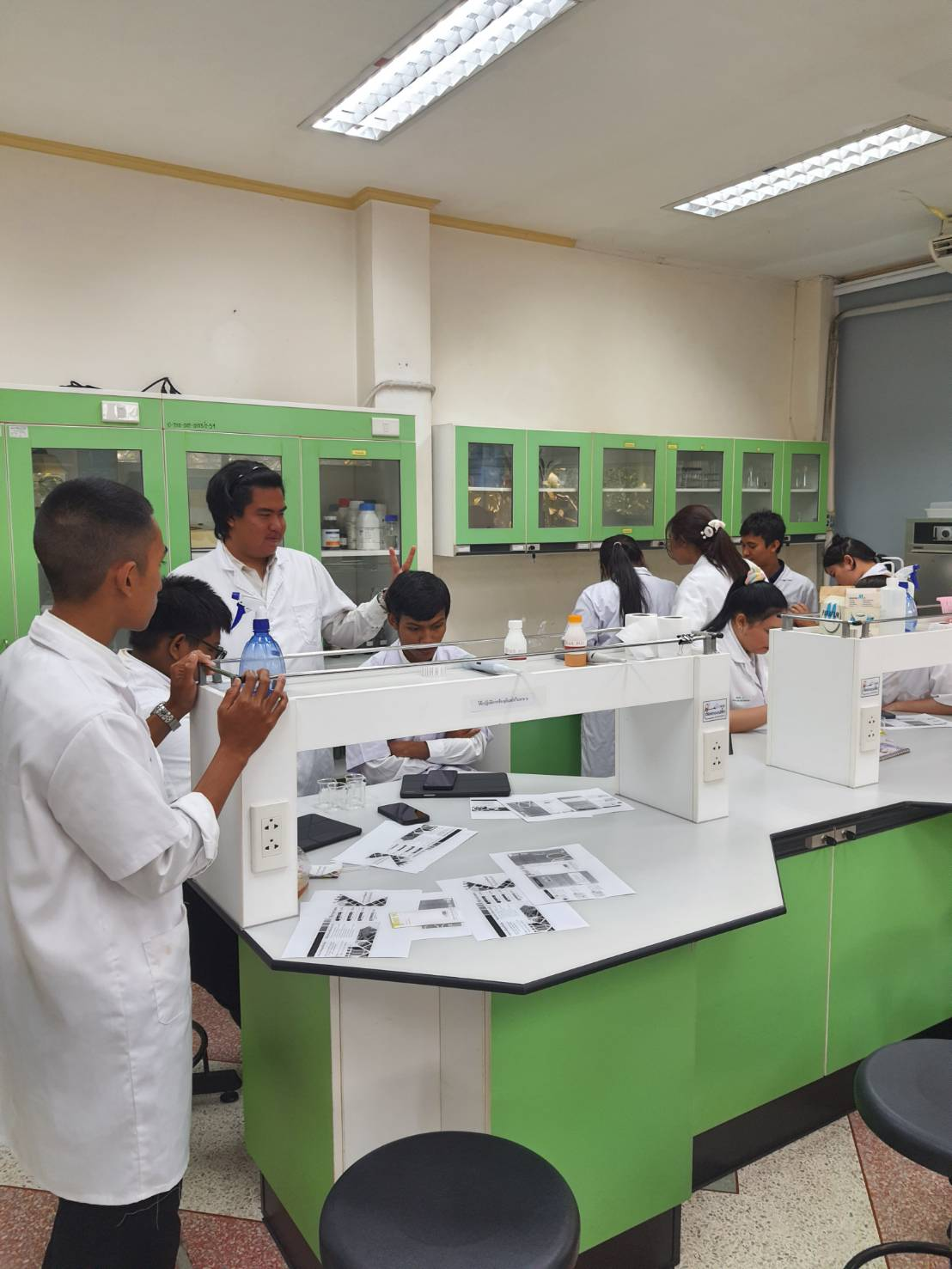
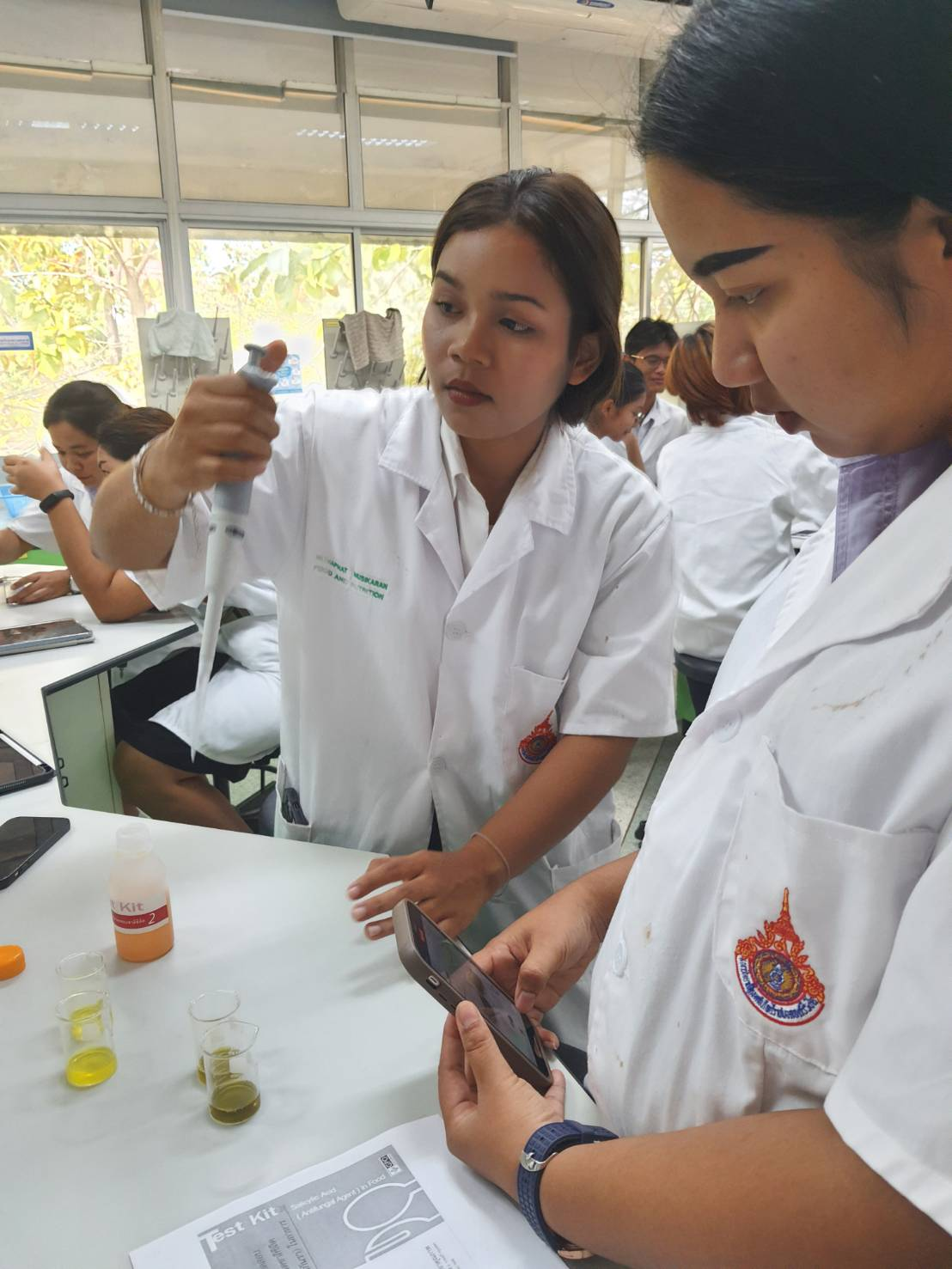
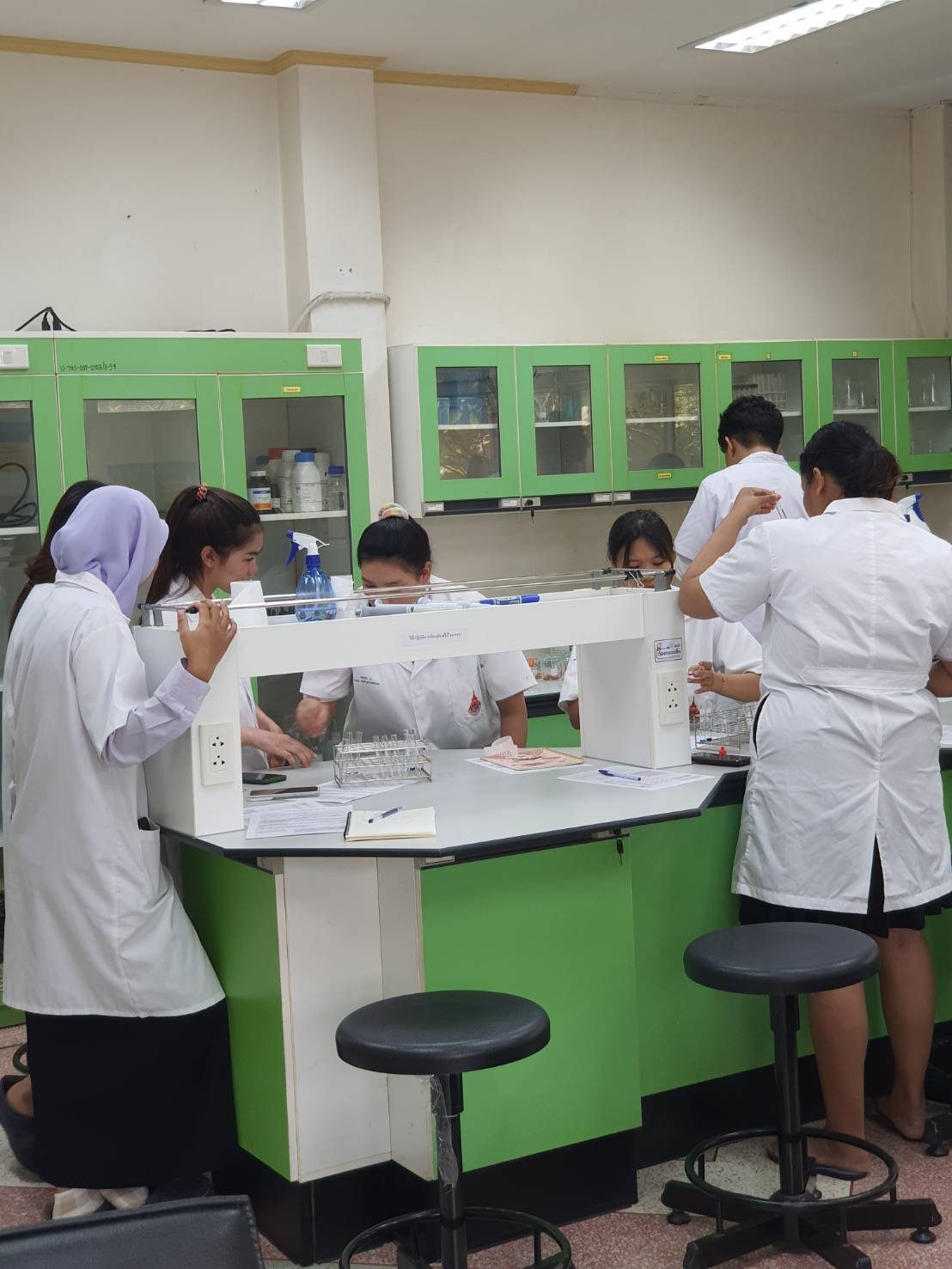
Related Links:



